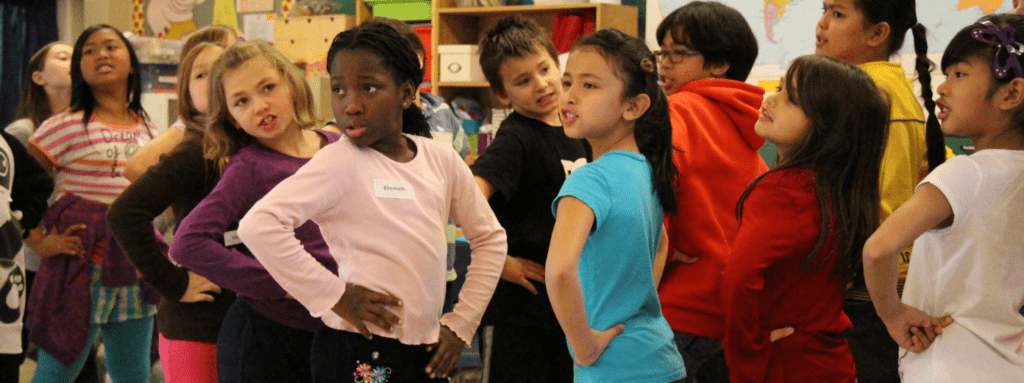
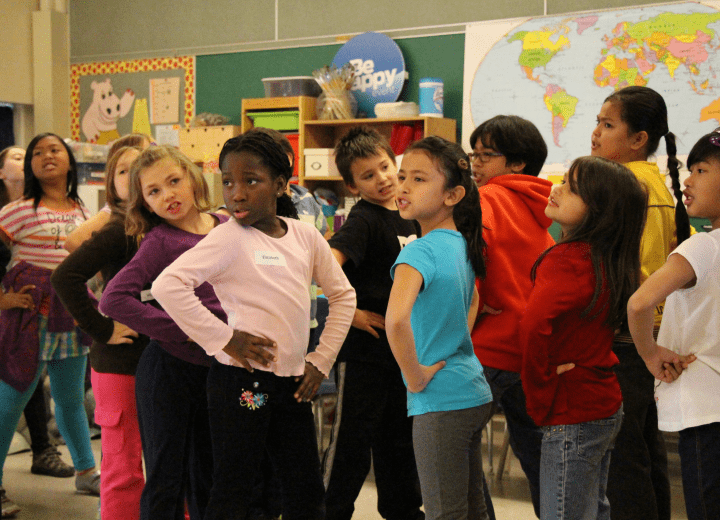
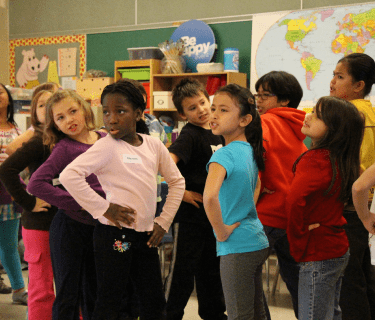
Explore the Gr. 1-6 science curriculum by acting it out – sooo much fun!
This is a 2-day program involving 4 classes. It can be booked in multiples to accommodate an entire school. The Trickster artist will use a slide show on the smartboard to show the science content, then will lead the class in the process of acting it out. With each class, we’ll cover 1 unit of the new science curriculum over the 2 days. This creates long lasting memories and increased understanding of the science content.
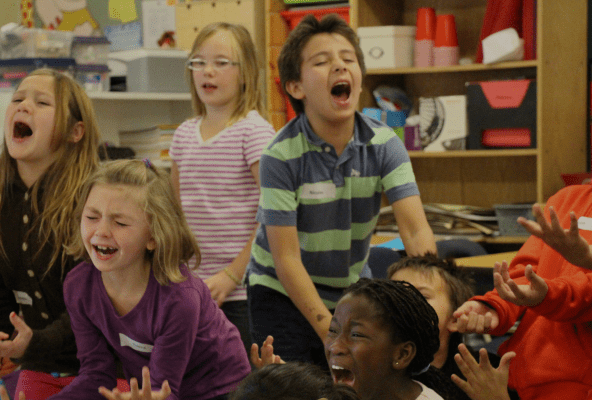
All fees are for 1 artist working with up to 4 classes once each day for 2 days. You can book multiple 2-day blocks.
Any schools that are located directly in Calgary or Edmonton
A day trip (schools up to 100km from Calgary or Edmonton city limits)
Schools located over 100km up to 300km outside of city limits
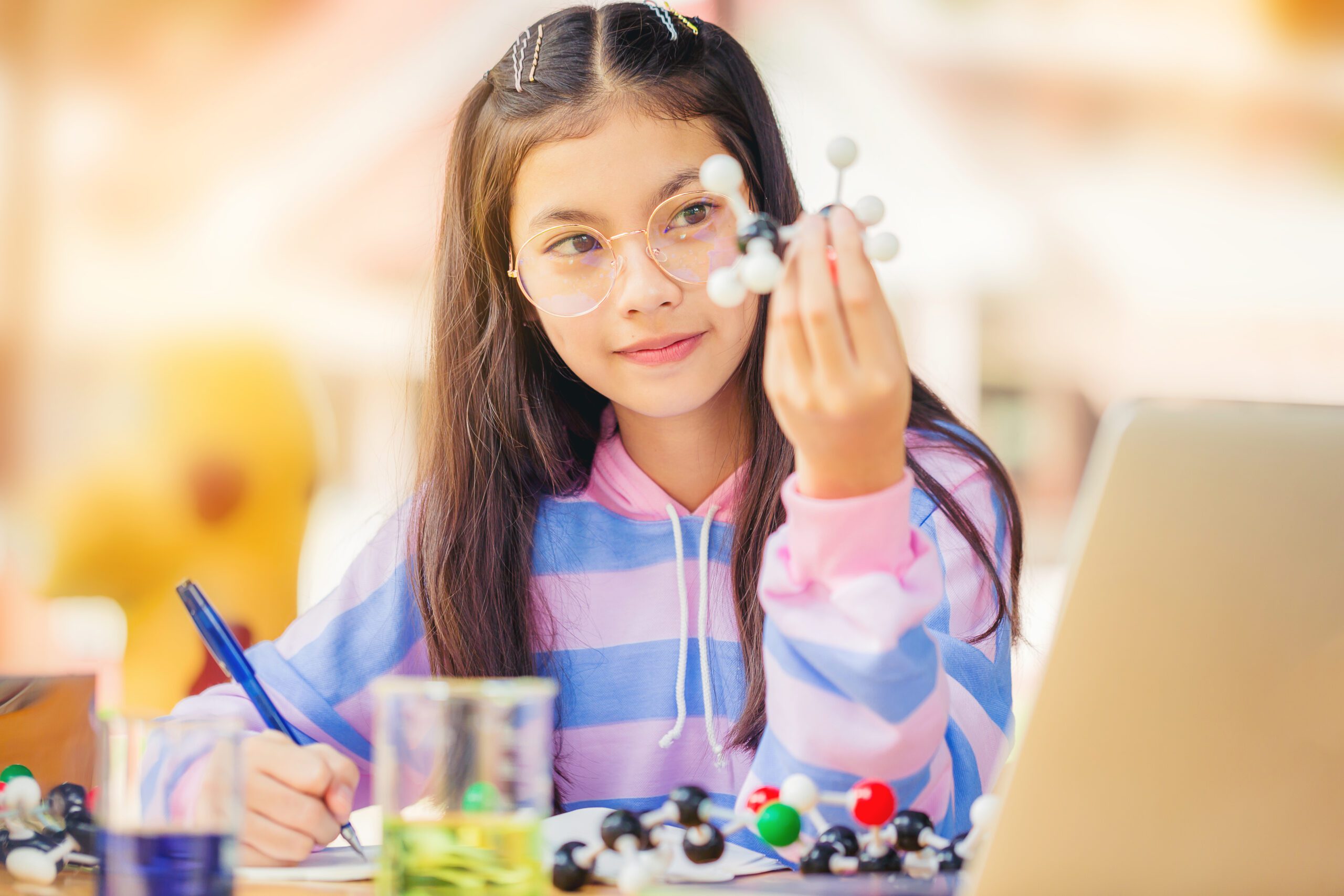
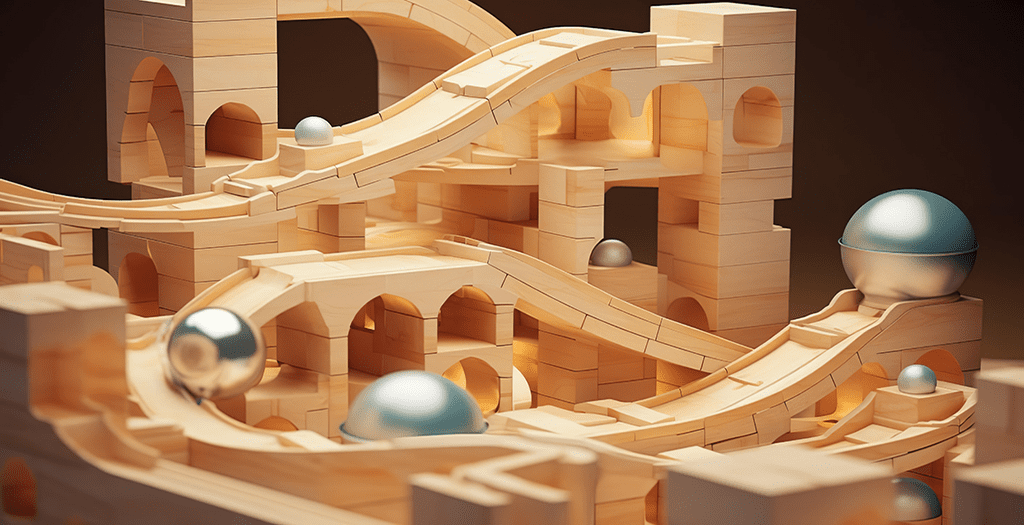
In this workshop we’ll look at how the movement of objects and animals can be understood. To do this we’ll act out the way animals move in different seasons. We’ll also be different objects and see how surface texture and shape affect movement and how various objects interact with each other.
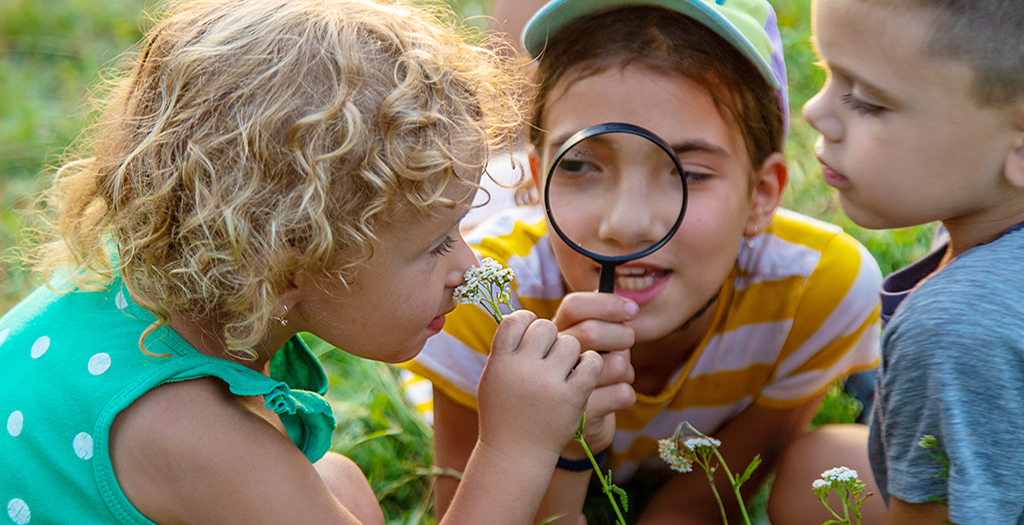
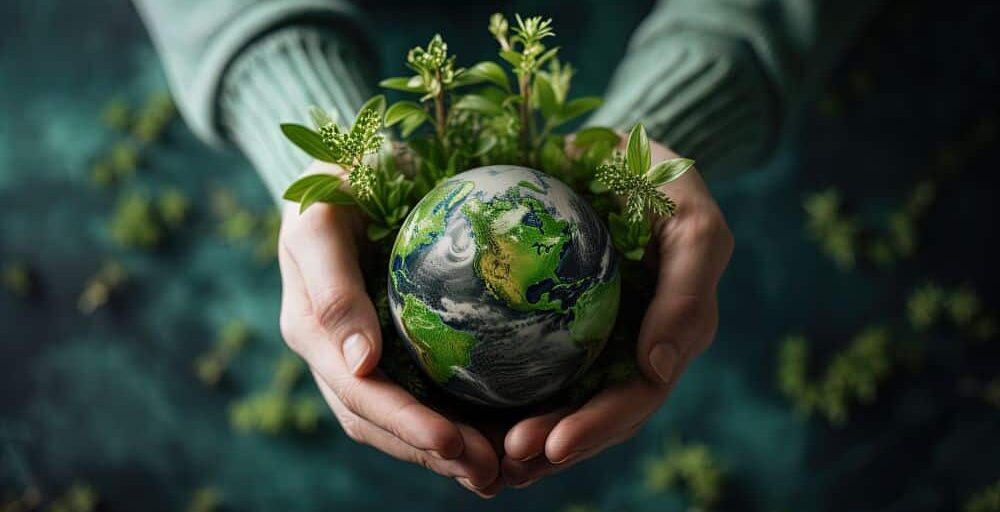
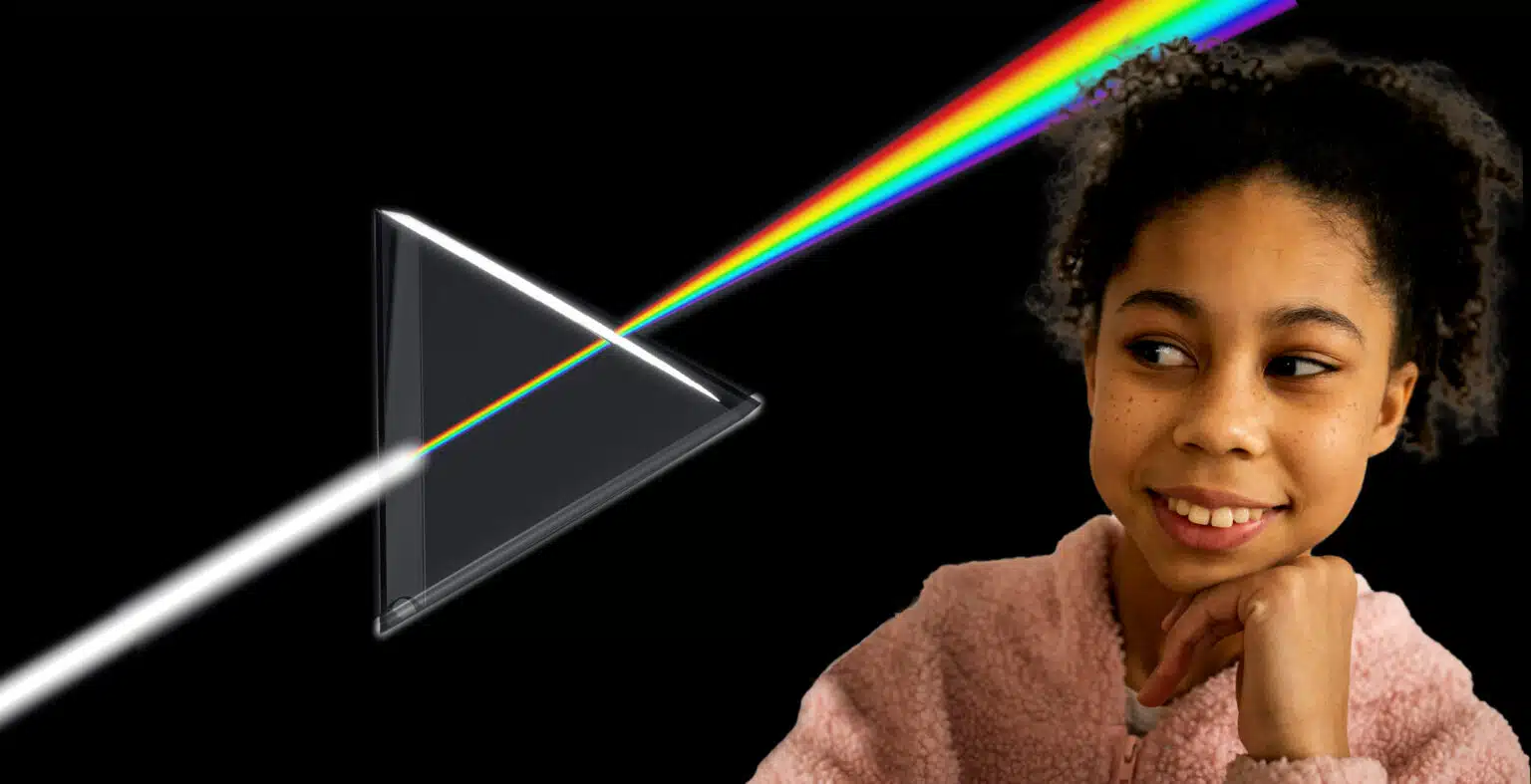
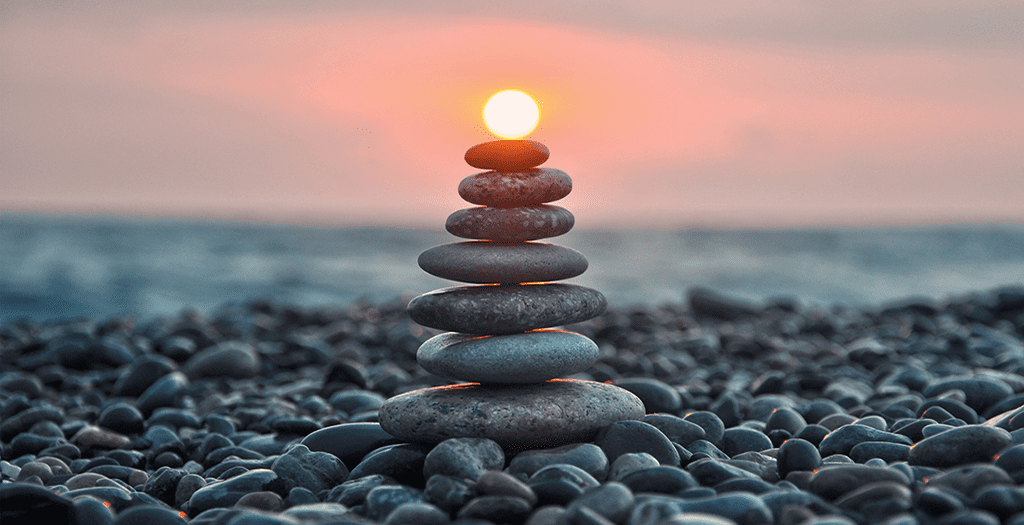
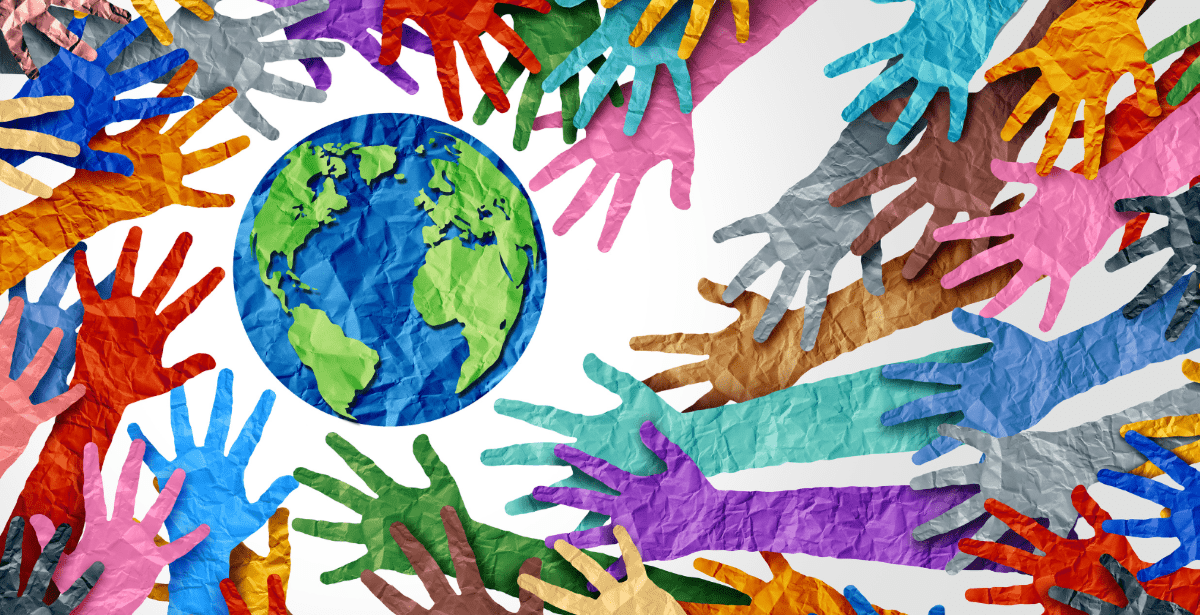
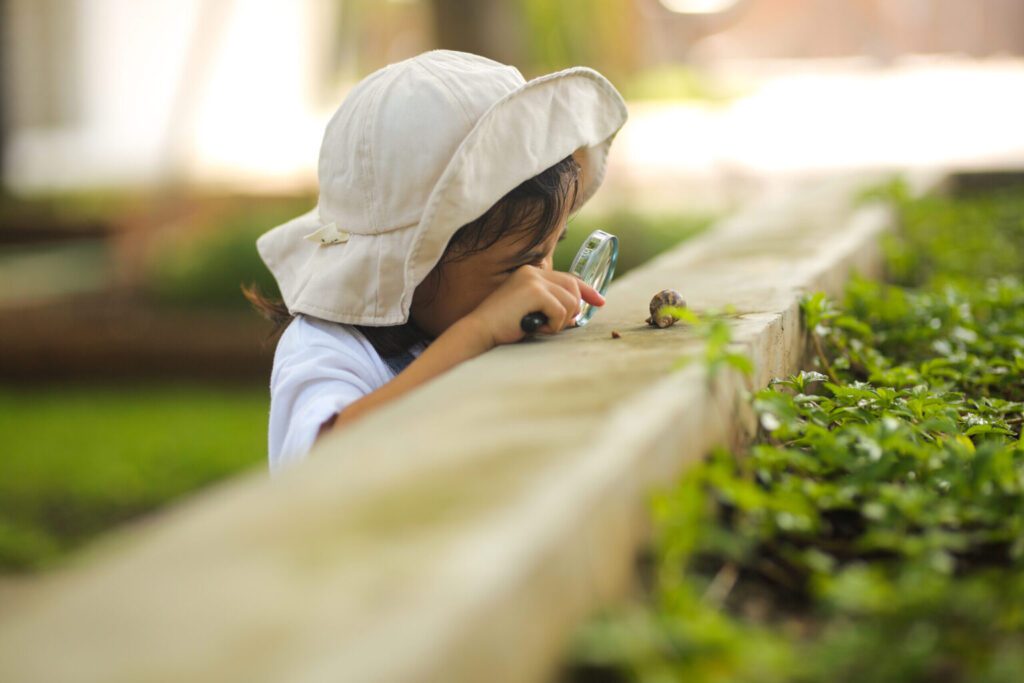
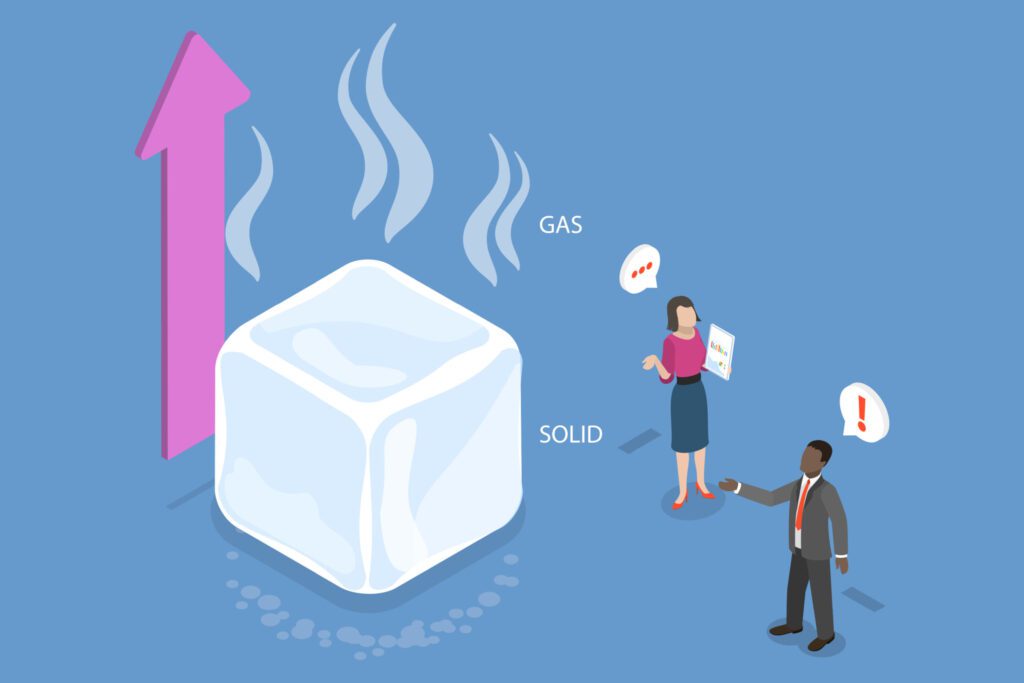
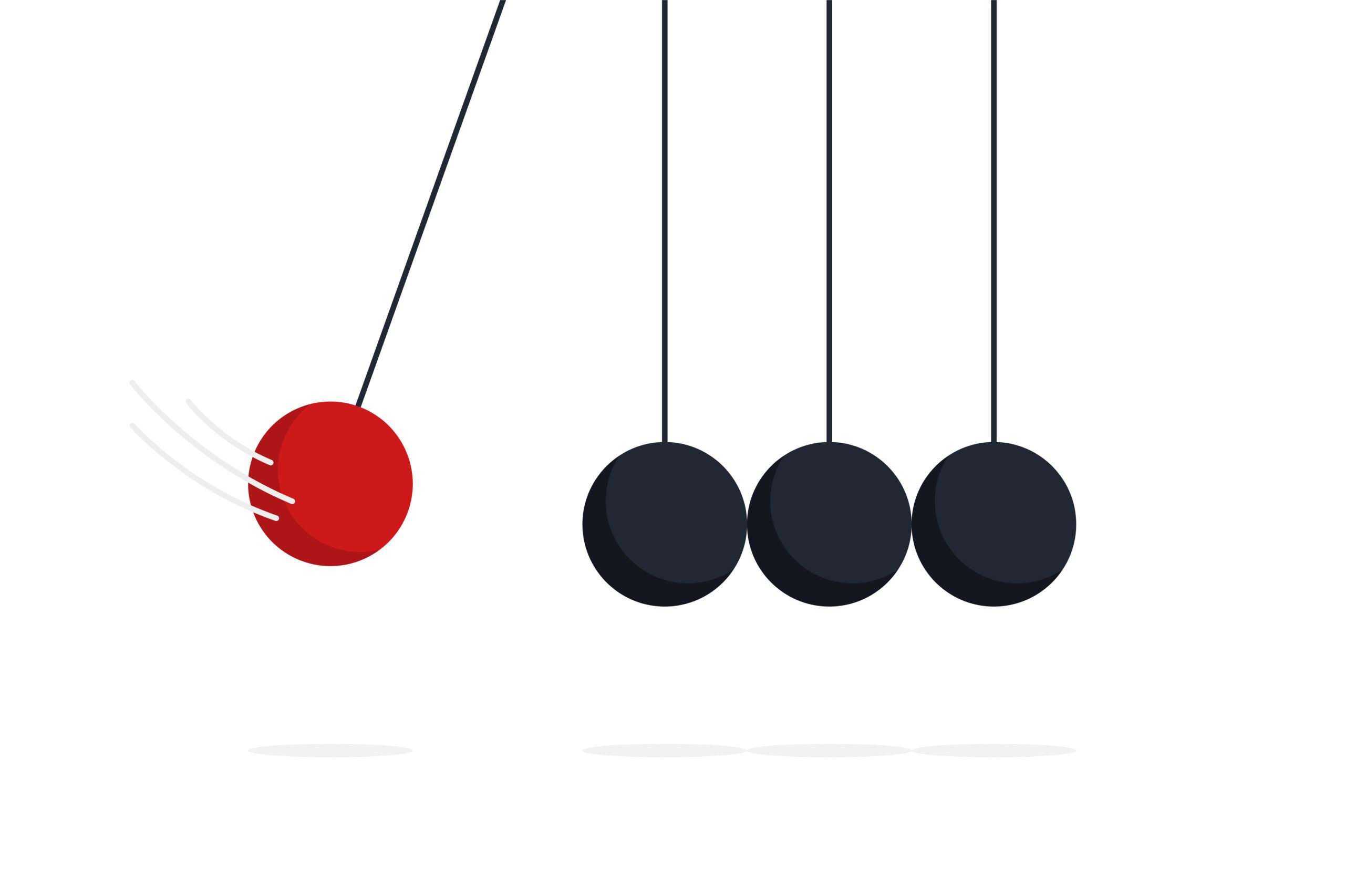
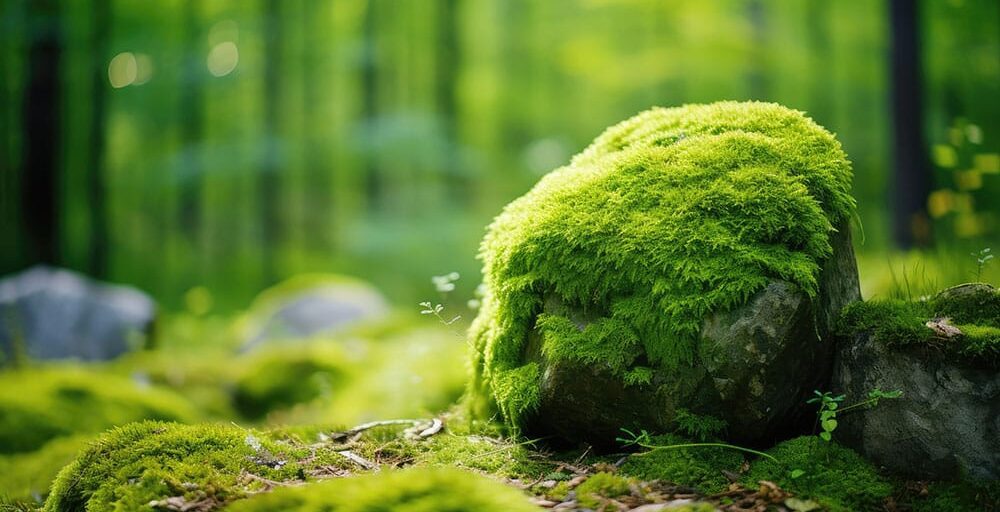
The Guiding Question is – What visible changes can be identified by examining Earth’s surface? Students will explore glaciers, earthquakes, floods, and all the ways that earth changes over time. They will act out wind and water changing the landscape and also discover that by digging up earth’s layers, we can find fossils.
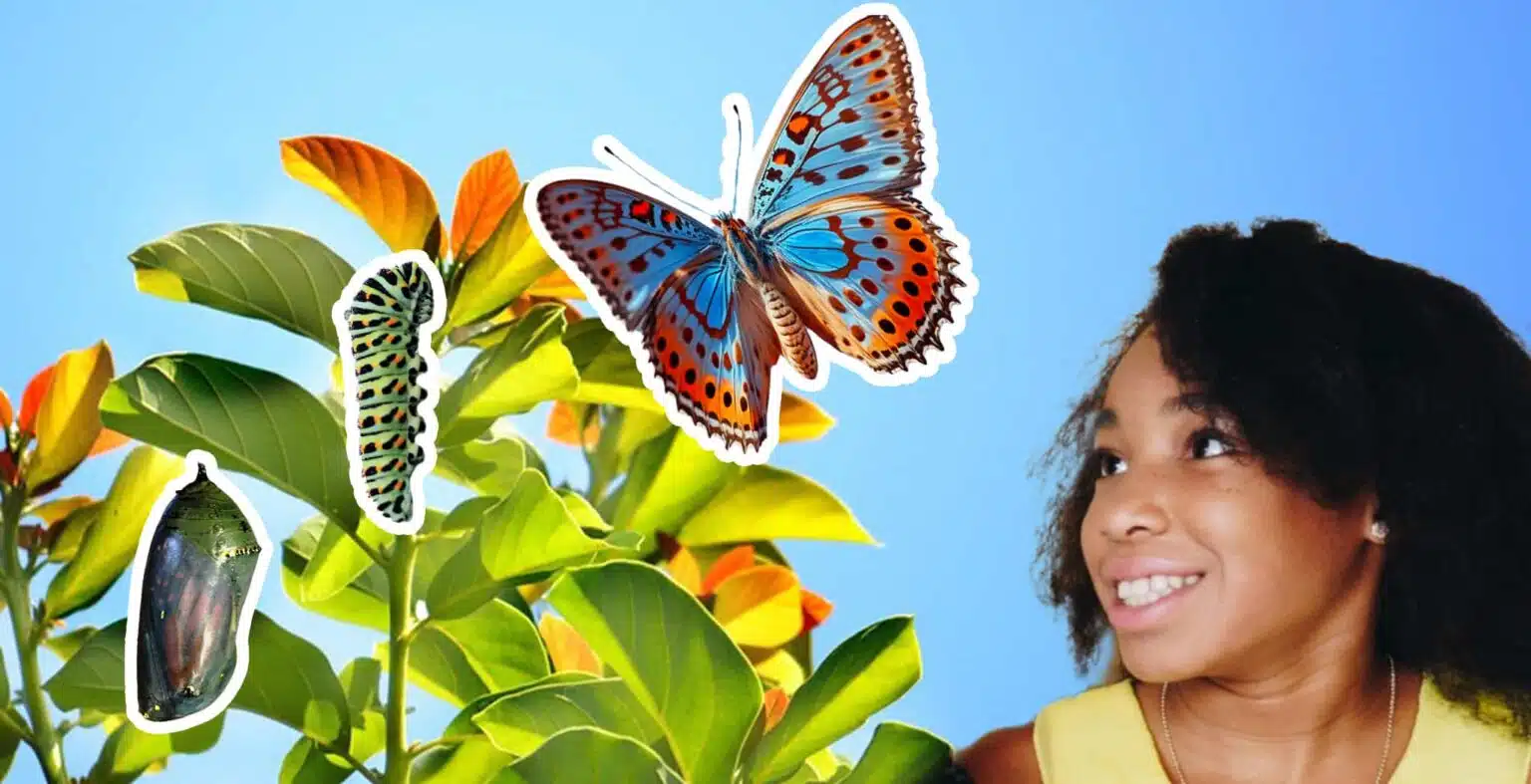
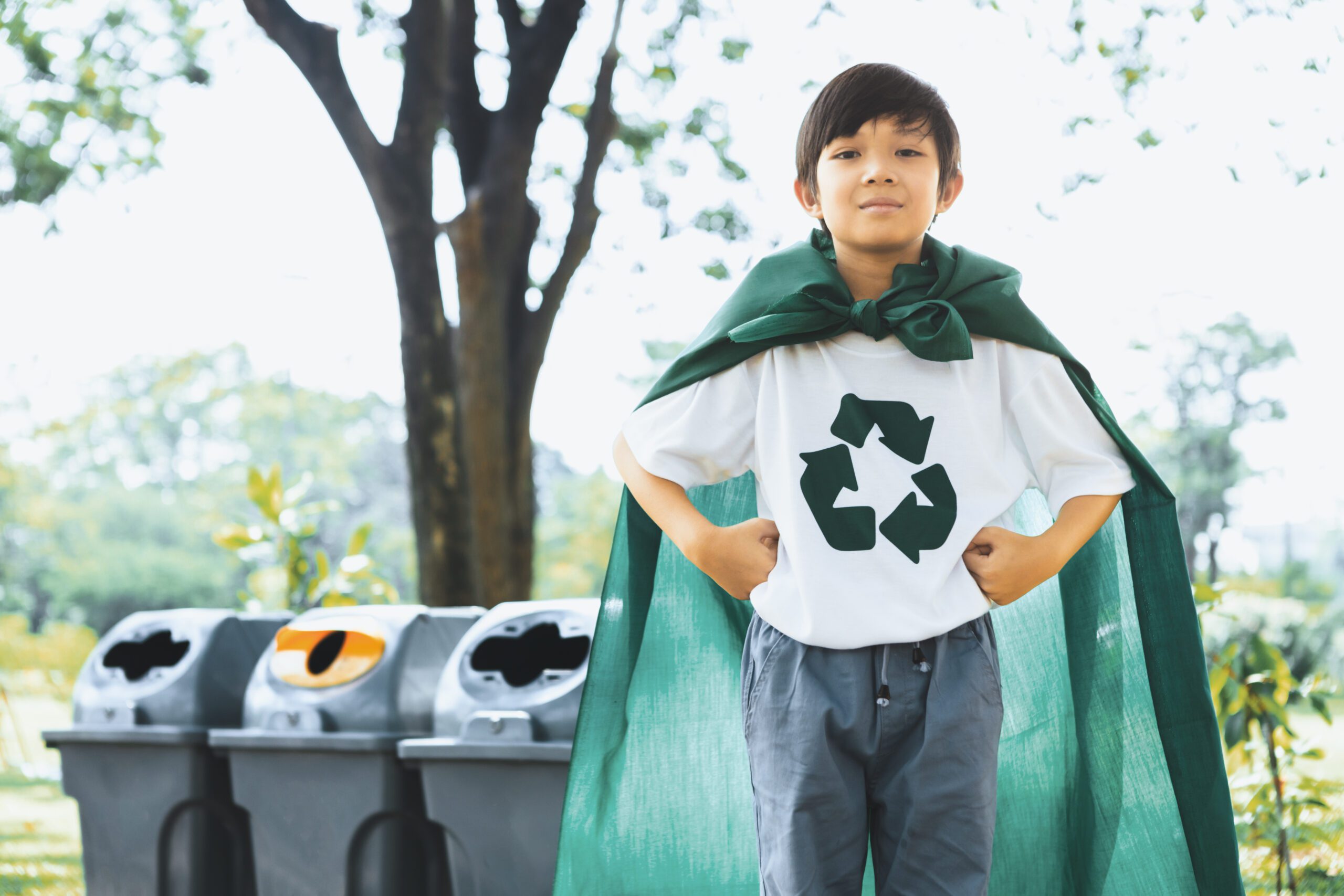

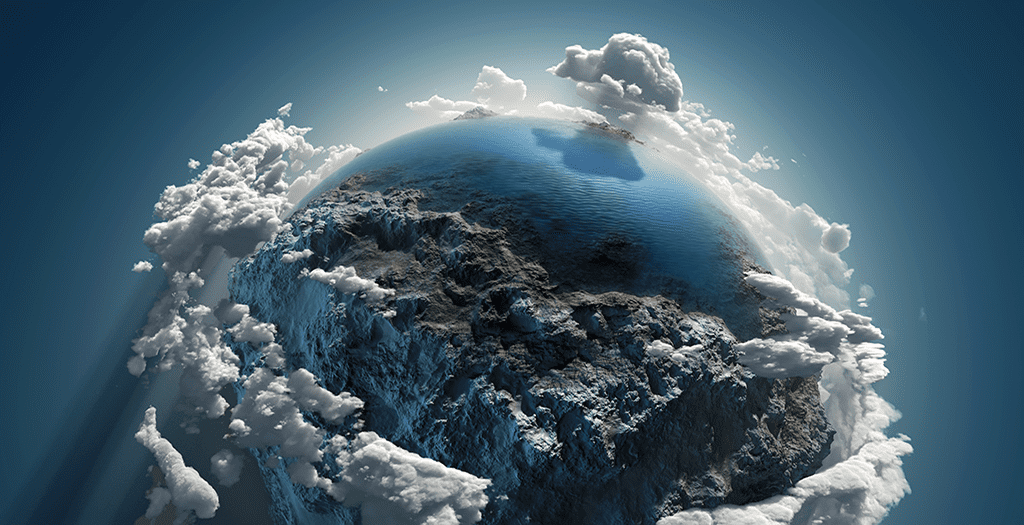
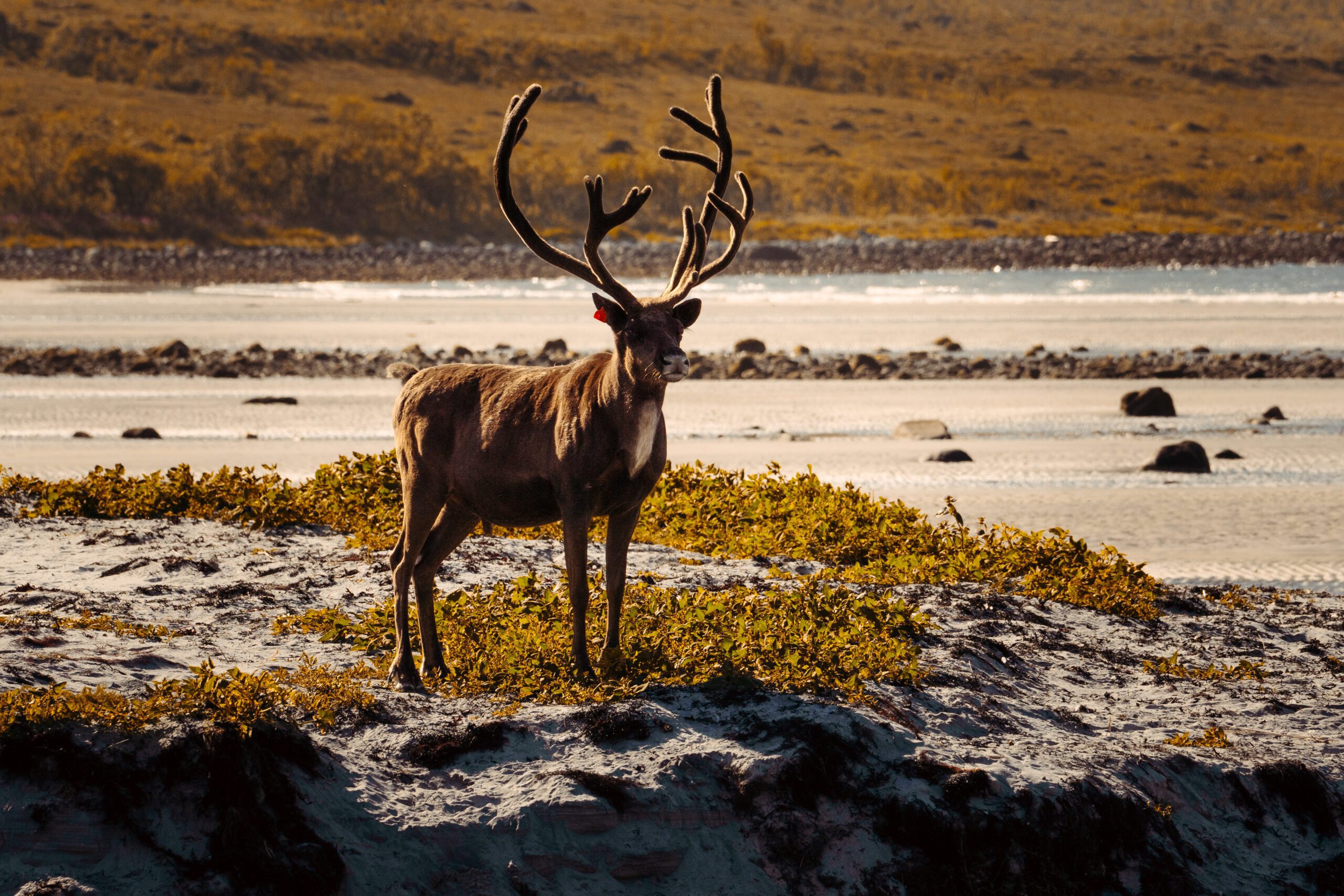
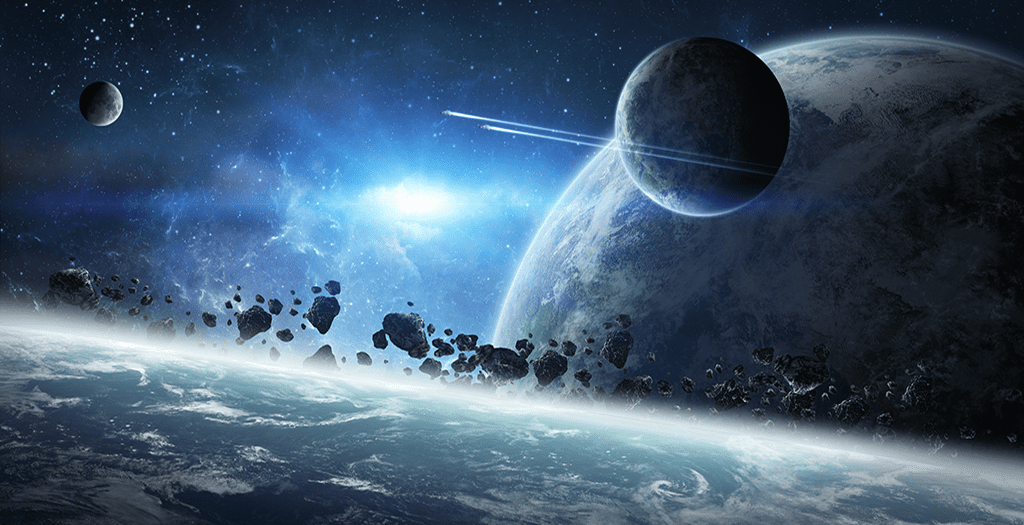
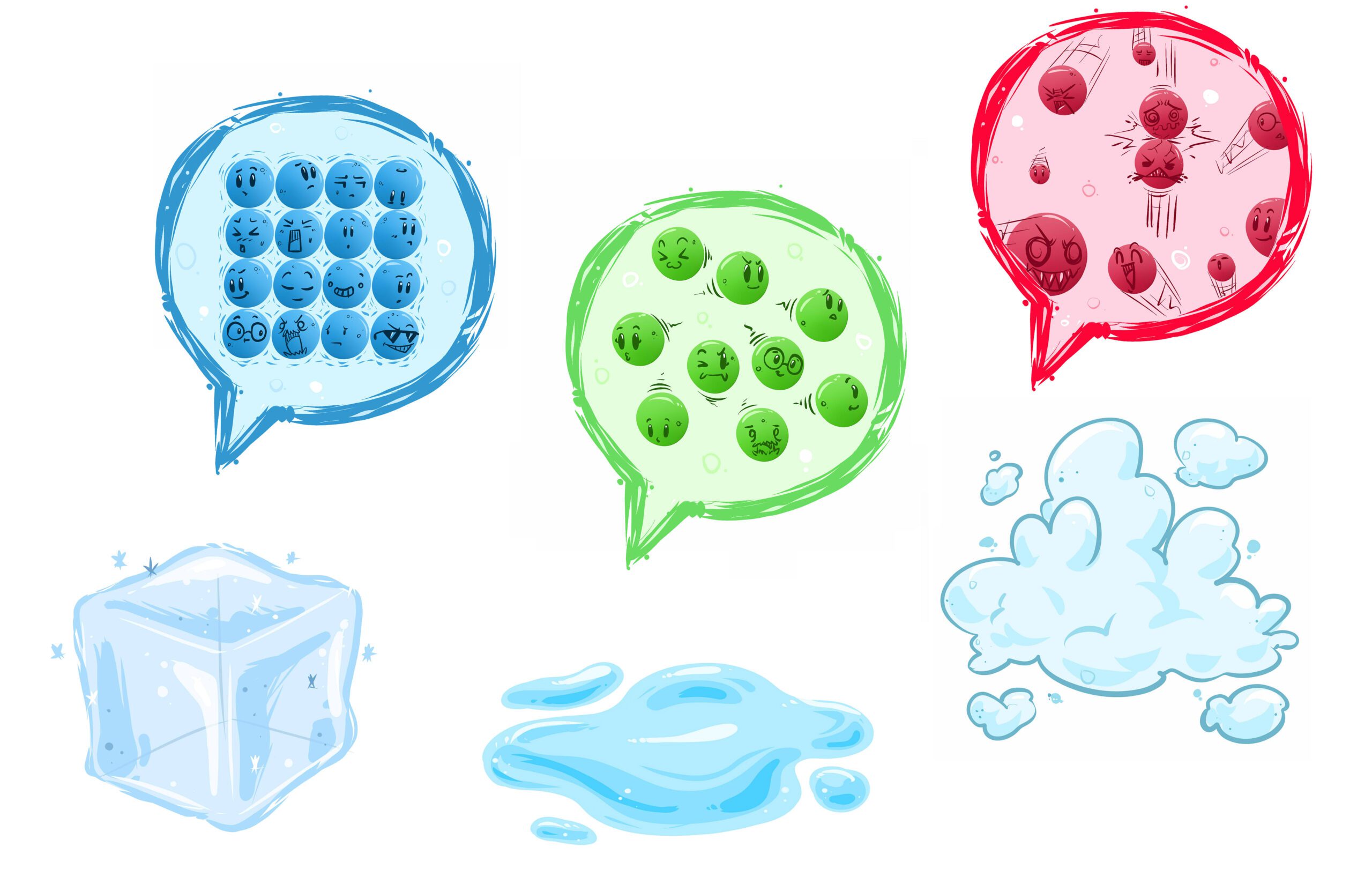
Our guiding question here is how can states of matter and other physical properties be explained using the particle model of matter? In this unit, we’ll delve into the particle model, learning about the movement of particles in their different states, between Solid, Liquid, and Gas, as well as the features of those states. From this, we can also explore the physical properties of matter; mass, volume, density, and compressibility.
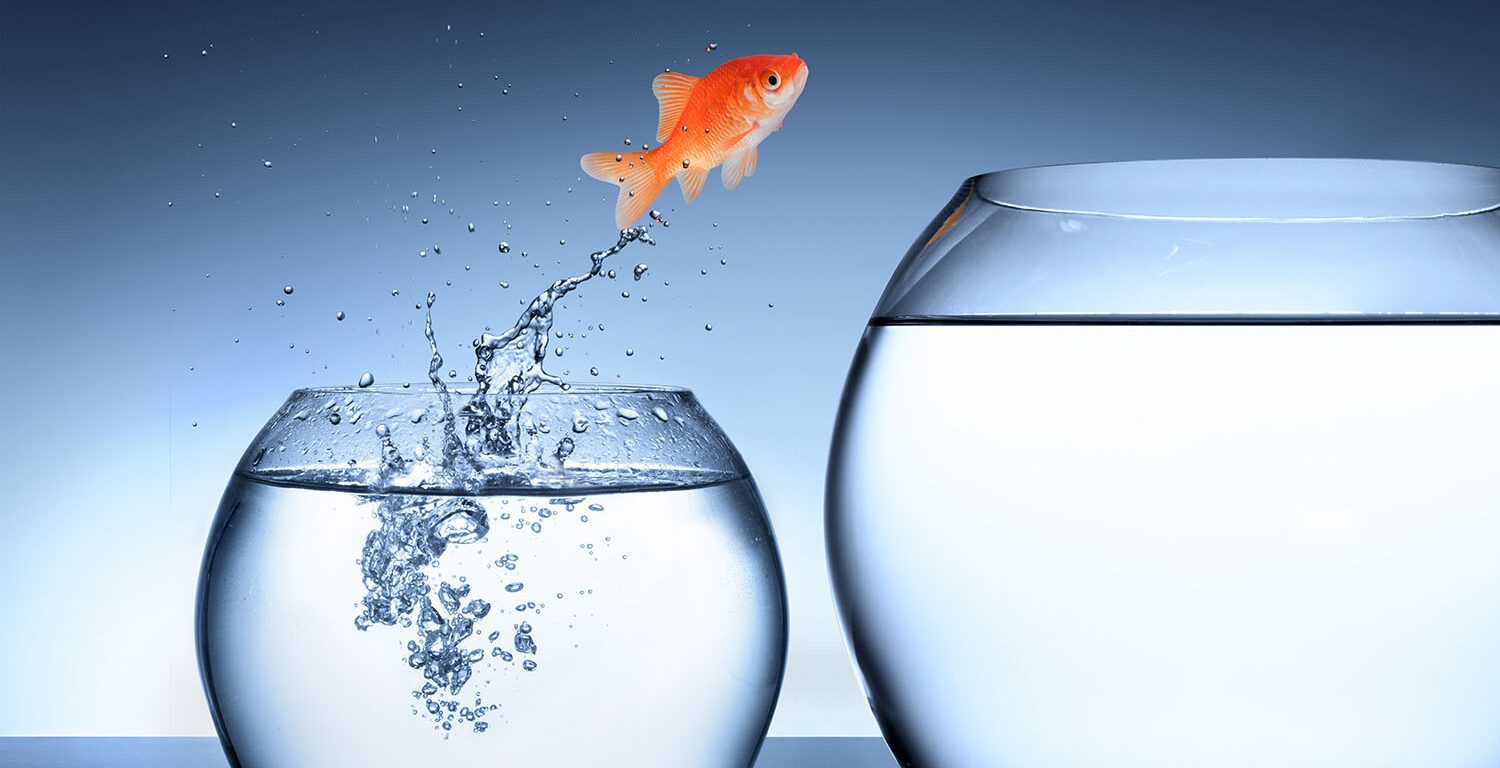
How are forces similar and different in water and air? This guiding question will take students on a journey to see how water and air both act as fluid‐ and how they affect the world around them. Expect the students to act as air and water moving through the room in different ways‐ or acting as planes and learning what kind of forces are exerted to enable flight.
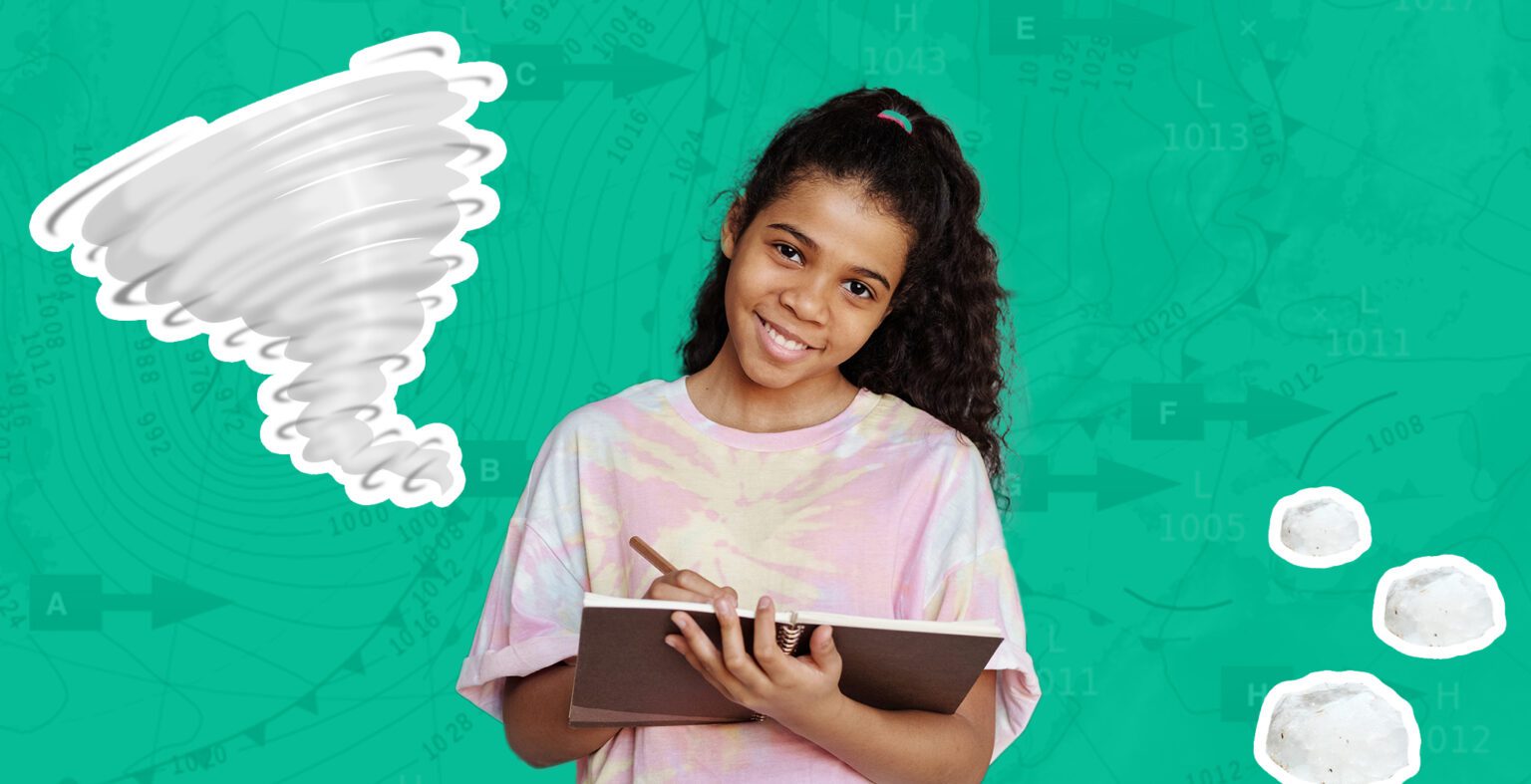
The big question here is how can climate and its effects be understood? What is the difference between weather and climate? With these questions guiding us, we will explore tools and methods used to measure weather and climate, as well as acting out the effects and changes of both.
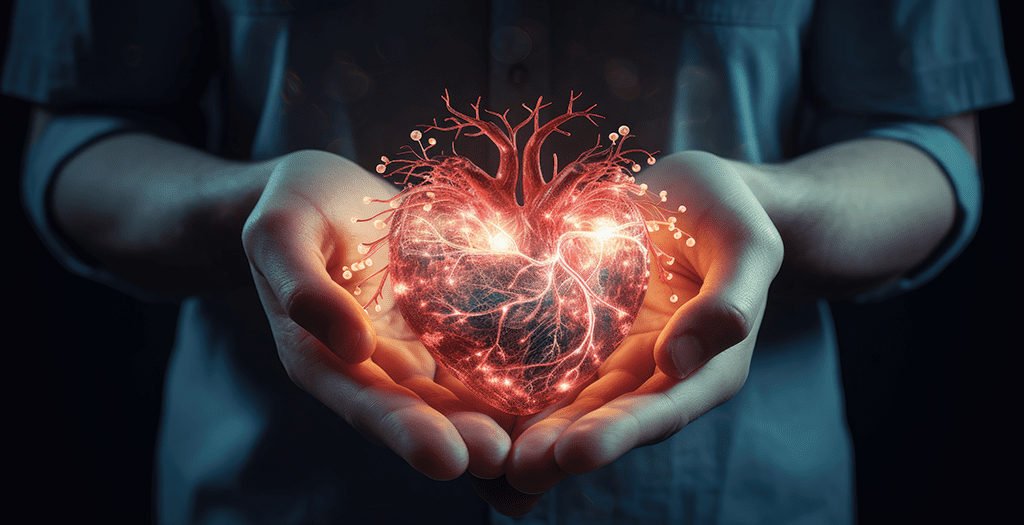
The question for this unit is, how are organisms supported by vital biological processes and systems? We’ll investigate the internal systems of organisms such as respiration, digestion, circulation and reproduction, as well as the musculoskeletal system and growth of an organism. Plants and animals are both a part of this unit, so we’ll also consider the plant transport systems, the xylem and phloem, which are similar to animal circulatory systems.
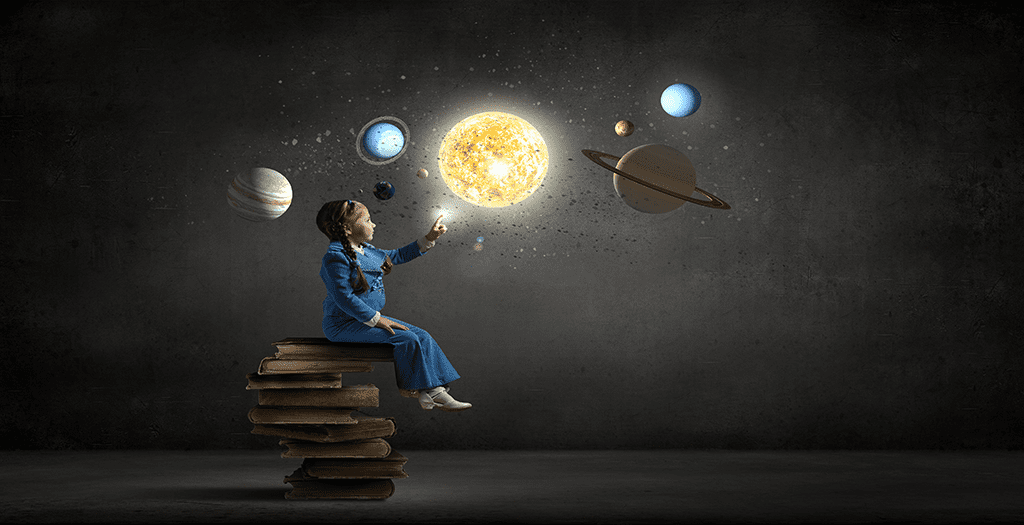
How are astronomical phenomena observed and interpreted? Some of these phenomena, like aurora, and eclipses, don’t seem to directly affect us, but they help us to learn and understand more about the world and universe around us. Other phenomena, on the other hand, like the phases of the moon, the solstices and equinoxes, meteors, and even the rotation of the earth directly affect us. Acting out the celestial bodies and the ways in which we connect them to daily life will help to clarify this question.
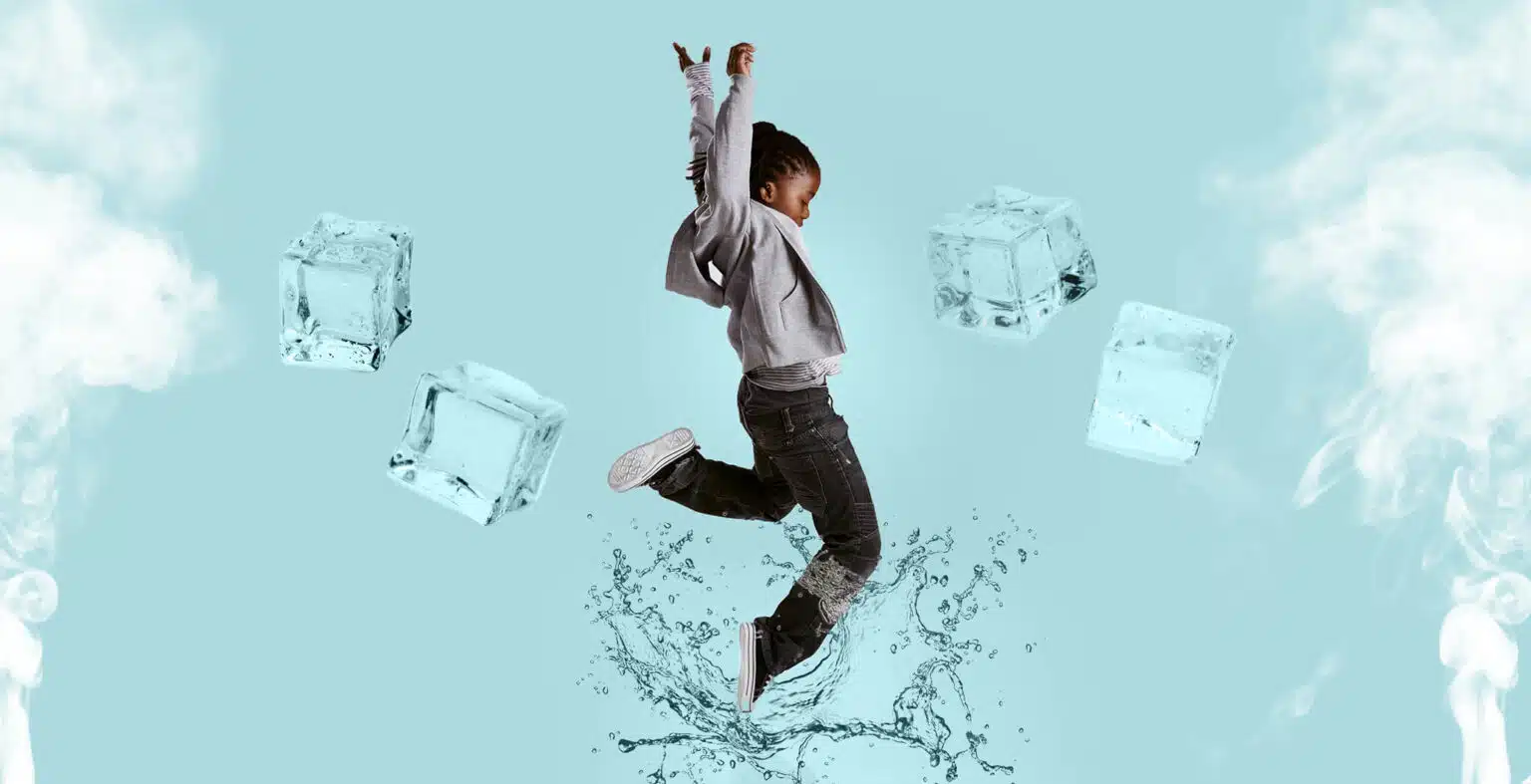
The guiding question here is how can the particles of matter be influenced by heating or cooling? We’ll look at the properties of matter changing between states from solid to liquid to gas, and the processes involved such as Melting/Freezing, Boiling/Evaporation, and Condensation, with the students acting out these processes‐ as well as a few examples of how they affect the world around us, like through freezing rain and thermal expansion.
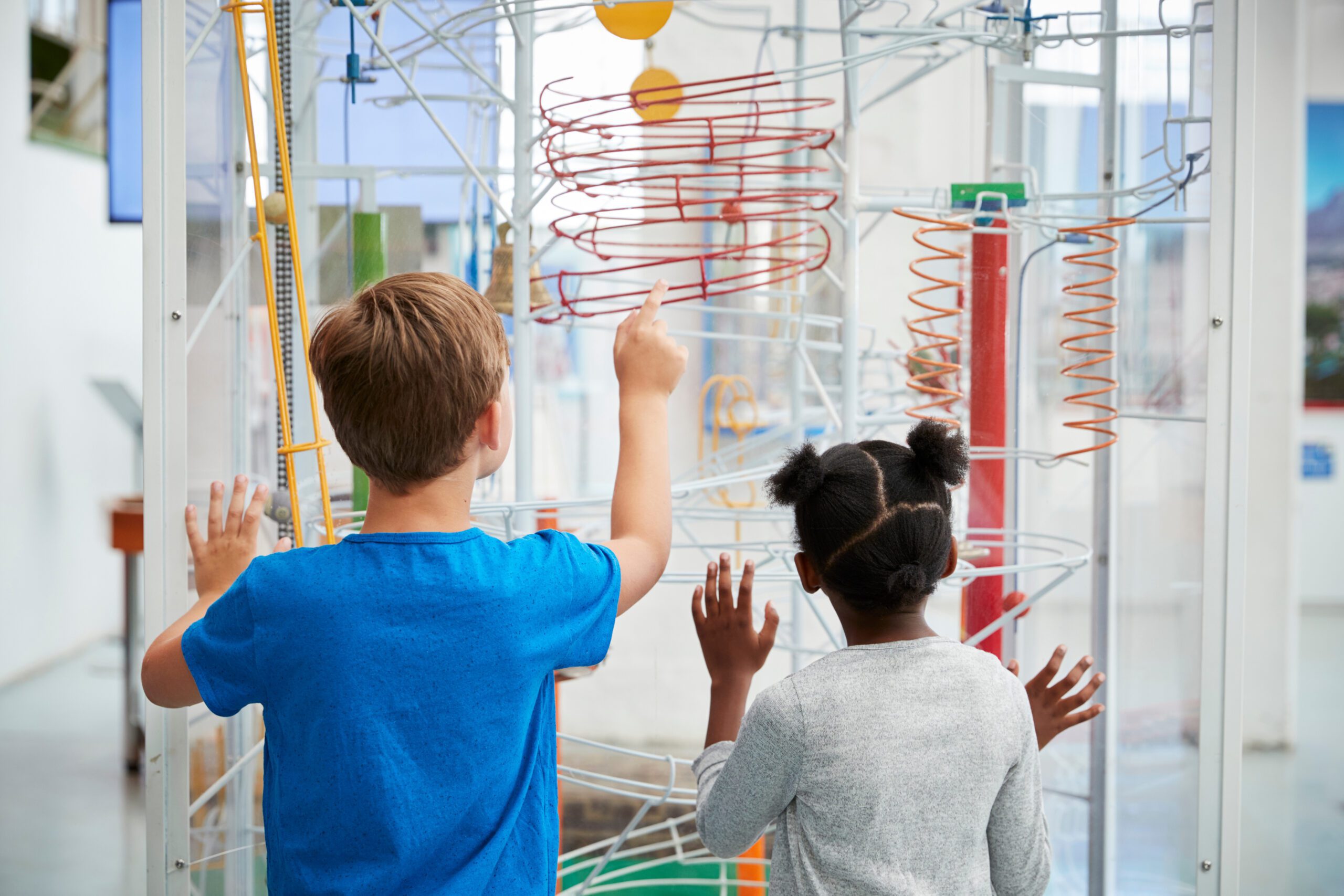
Students analyze forces and relate them to interactions between objects‐ in what ways can interactions lead to physical change? We’ll explore more of the same forces, like friction, springs, compression, tension, torsion, and shear. As well as plasticity and elasticity. To further this exploration, we will also learn about Newton’s 3rd law of motion; for every action there is an equal and opposite reaction.
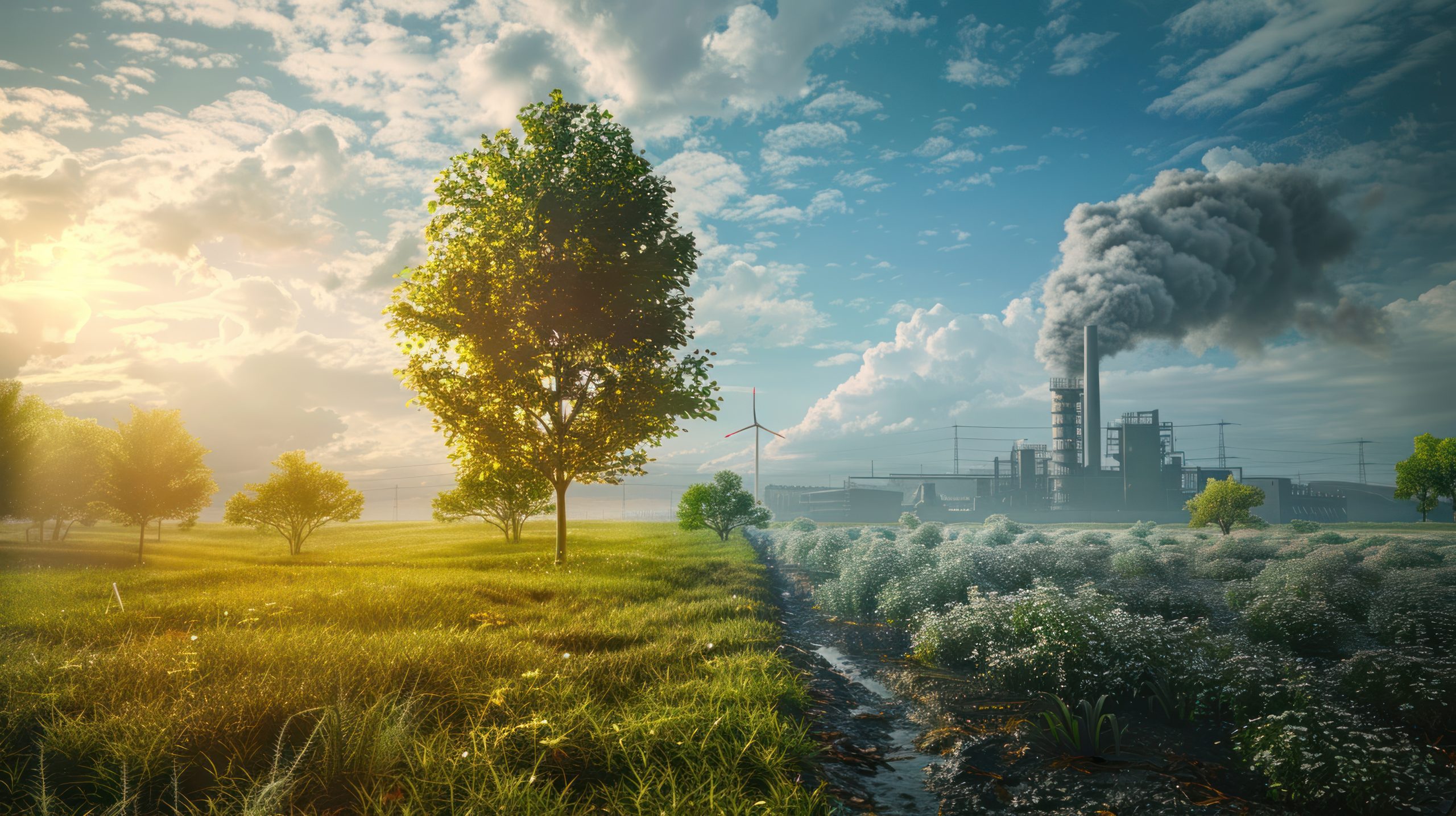
A big guiding question for this unit‐ what relationships exist between climate and changes on Earth? First we’ll look at natural and man‐made changes to climate. Exploring natural phenomena such as asteroids, volcanoes, and hurricanes, and man‐made causes like the albedo affect and the greenhouse effect‐ where we’ll further explore the causes and origins of greenhouse gases. After this, we’ll also talk about clean energy sources and ways that we can start to make positive changes‐ even hosting our own miniature version of the Paris Accord.
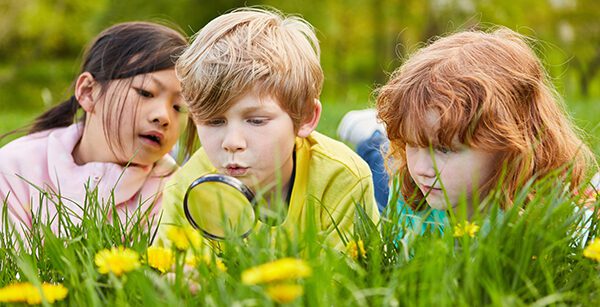
We’ll ask in what ways are ecosystems complex? The answer will take the students to act out the parts of various ecosystems and how they interact, both terrestrial and aquatic. We’ll have to explore both biotic and abiotic interactions in deserts, grasslands, forests, wetlands, the arctic, and oceans, as well as biodiversity. Finally, we’ll see the important role of plants in an ecosystem, and after learning about the processes of plants, such as photosynthesis, we’ll also see how plants prevent soil erosion and other changes.
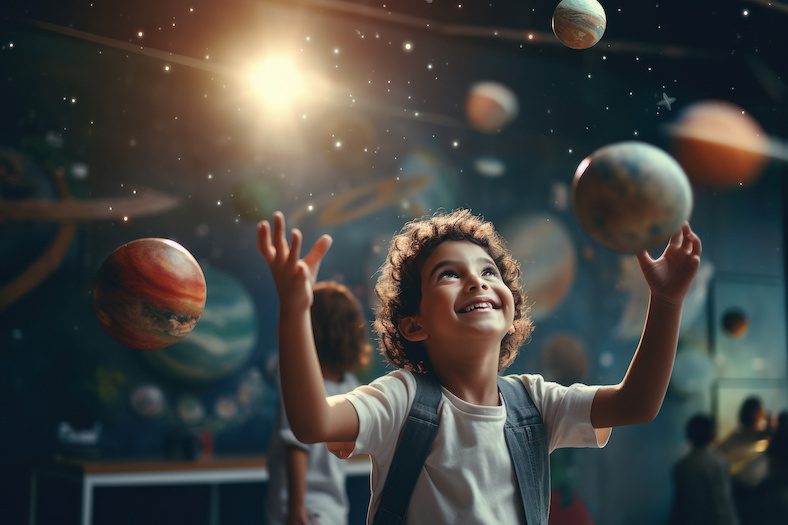
In what ways can the solar system be explored? Throughout human history, we have thought many different things about Earth’s place in the universe‐ so let’s act out some of these thoughts and figure out why they would be thought of. Why would early humans have thought earth to be the centre of the universe, with the sun and stars revolving around us? Or that the earth is flat, or perhaps the sun is the centre of all things, not just our solar system? In this workshop, we’ll come to understand why these things were thought of, and look at how we currently understand the universe and the pieces within. Finally, we’ll talk about gravity, and how it affects both us and objects in space, as well as the difference between Mass and Weight.
Use the calendar to choose the 2 days that work best for your 4 classes. If booking for 5-8 classes book 4 days. If booking for more than 8 classes choose the start date and we’ll get back to you to work out the rest (dates chosen are tentative until confirmed by our office).
Please pick your start date:
These units are linked to the old Alberta science curriculum. Maybe you are still using that, or maybe you are from another province, state, or country and these units are what you are teaching. Let us know if you want us to lead these in your classroom. They work really well.
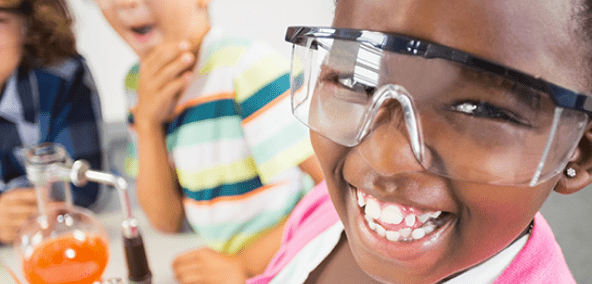
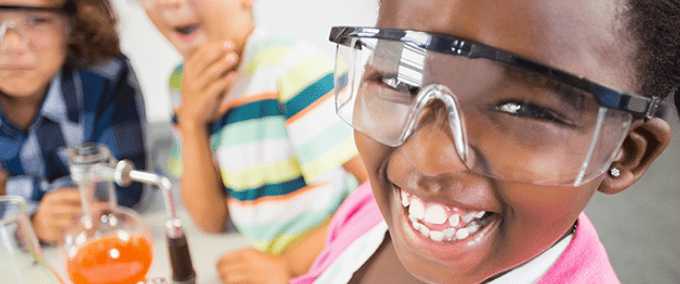

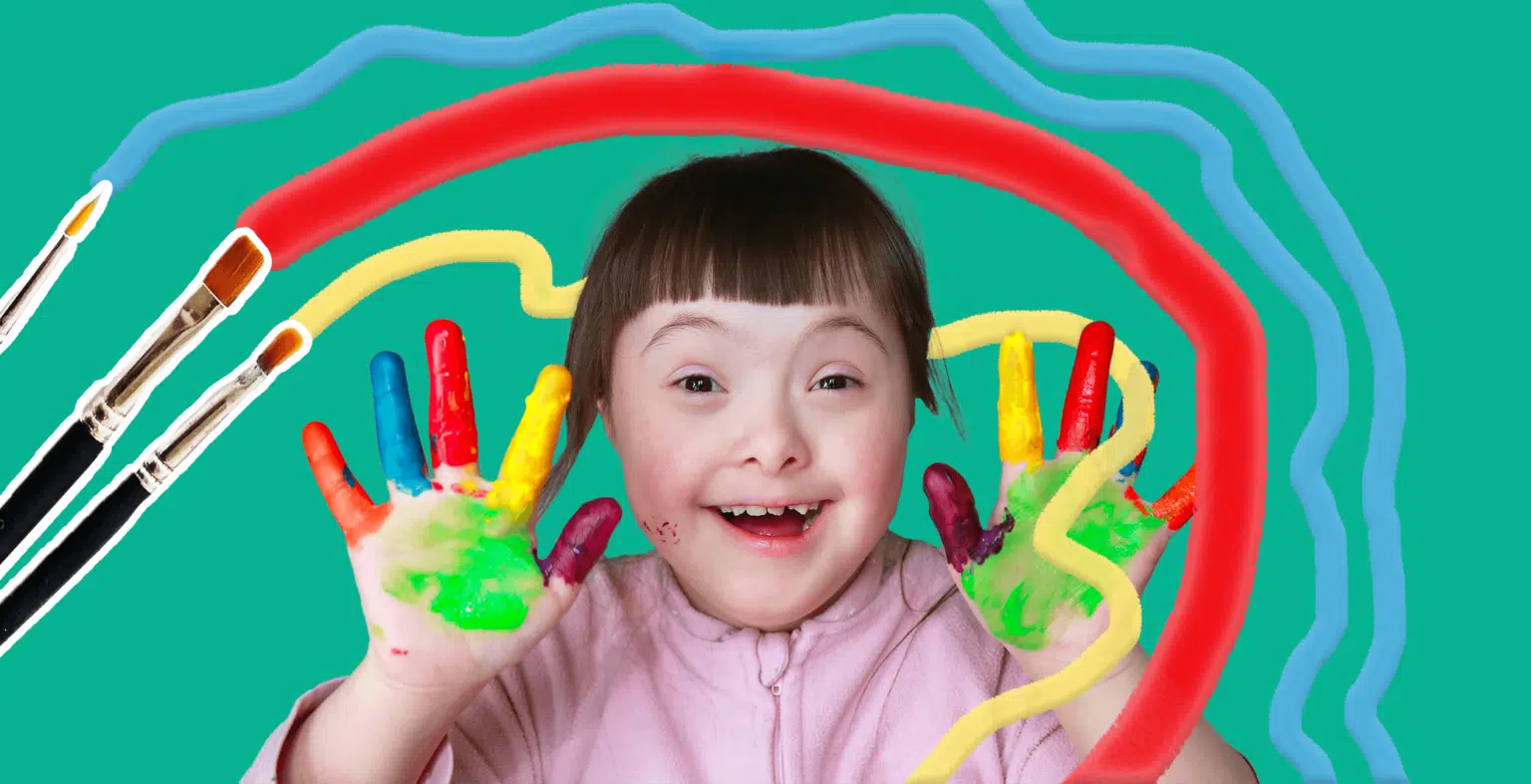
We will look at how properties of an object can be altered by building things together. We’ll be both the objects and the builders. We will measure, bend, twist, cut and shape the objects we need in order to create things like backyards, castles and magical places.
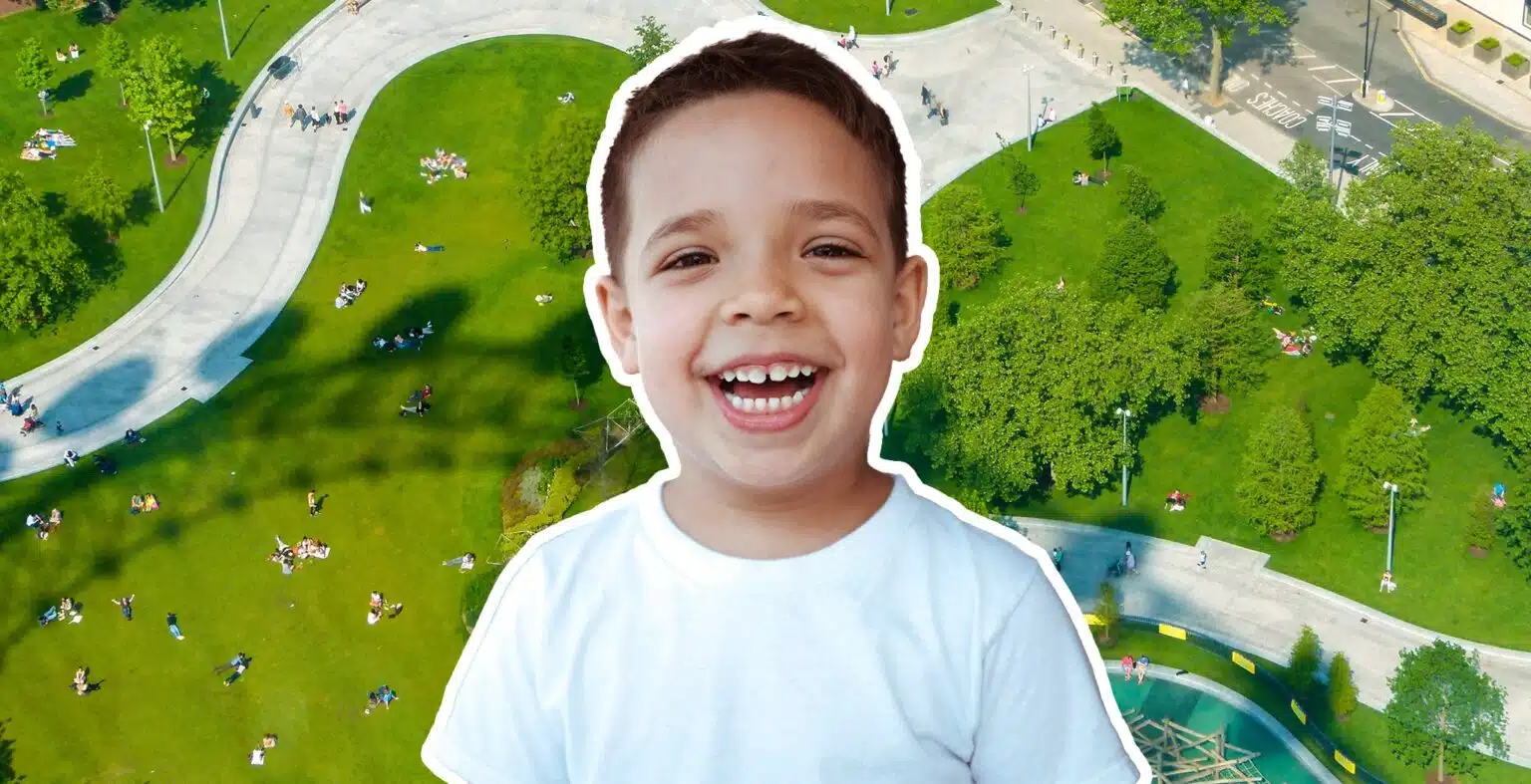
We’ll build backyards, parks, and lots more. We’ll be different materials, and we’ll populate what we build with animals and people. We’ll create parts and put things together in different ways. We’ll create magical worlds as play our way through a world of building things.
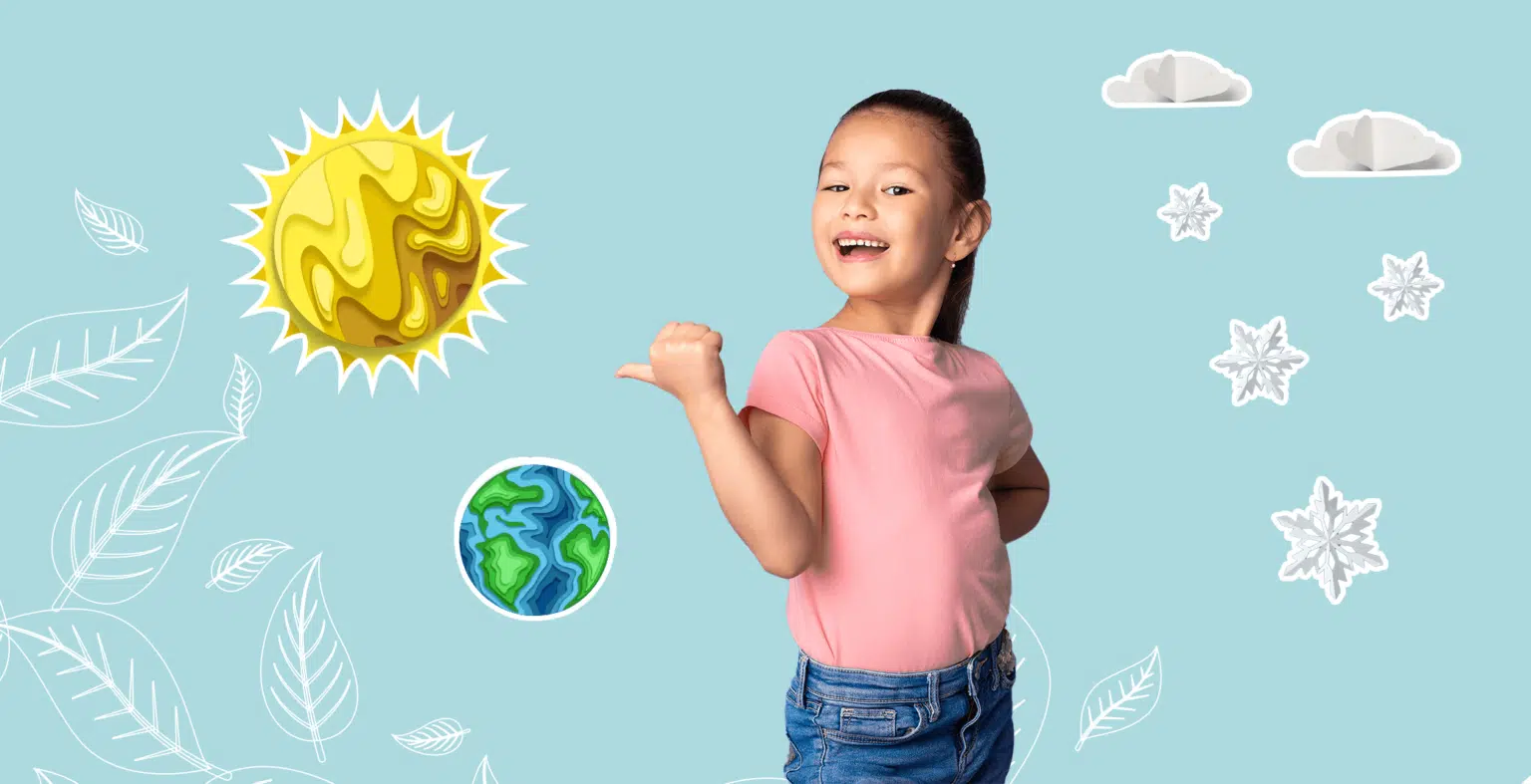

What liquids mix together? Which liquids are heavier? How do we describe liquids? How do liquids get absorbed? How does evaporation work? What are the states of water? How do we change water from one state to another? How do we keep our water clean? What contains water? There are many ways we can act all of this out in the classroom.

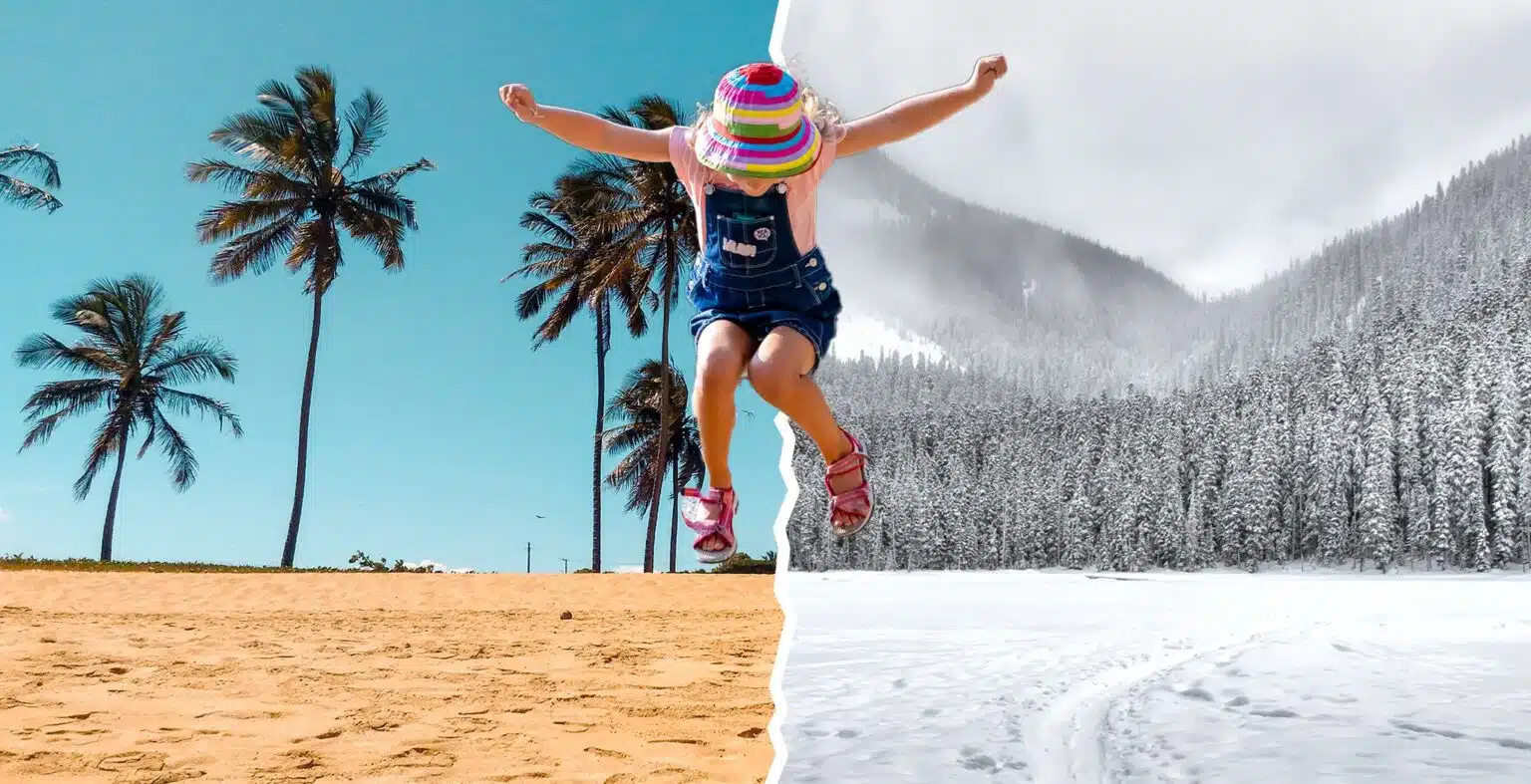
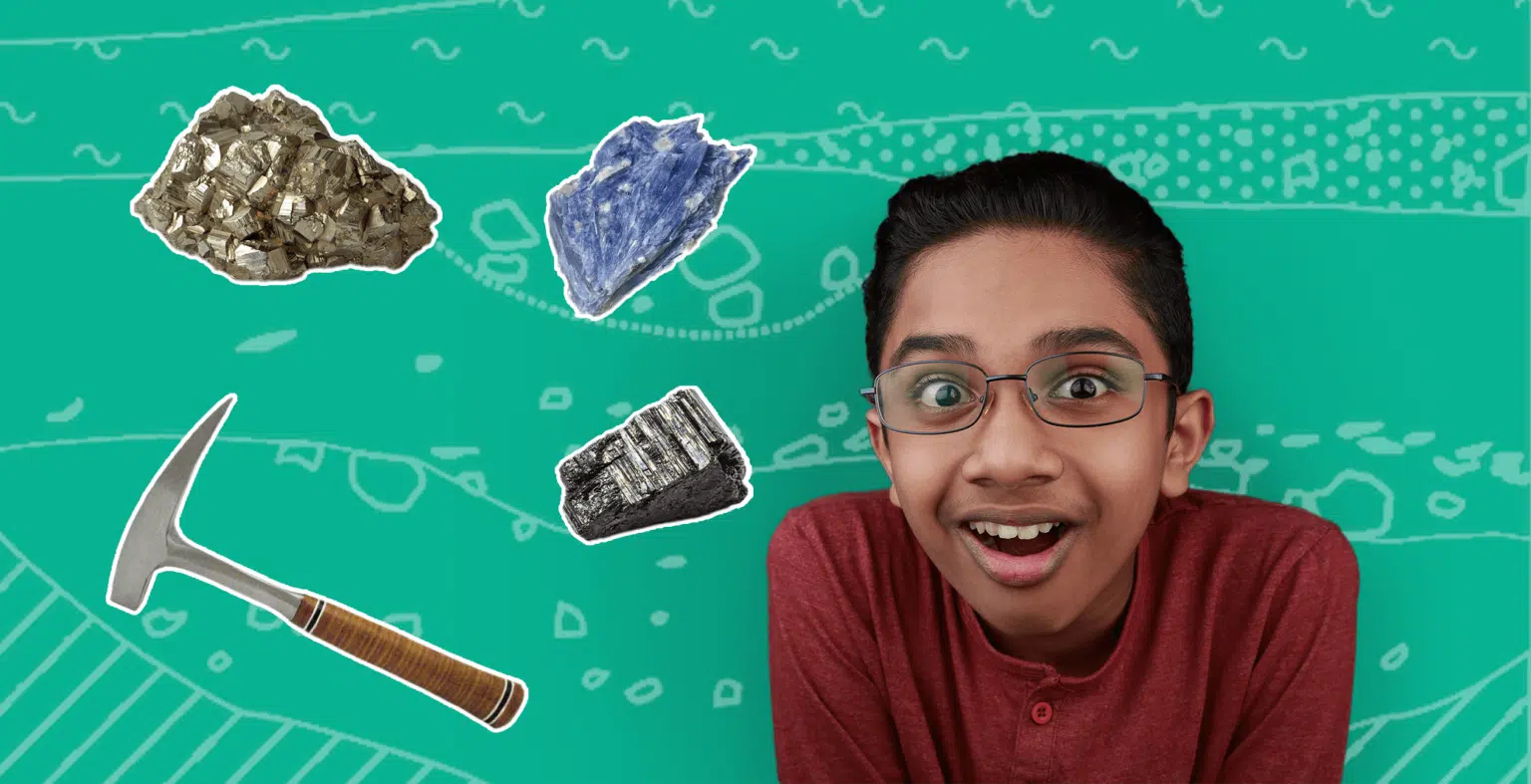
Students will have a blast learning about the rock cycle and how it involves big forces as well as little ones – from wind and rain, to volcanoes. Students will learn how igneous, metamorphic and sedimentary rock are formed. They will learn how to describe rocks and talk about their qualities.
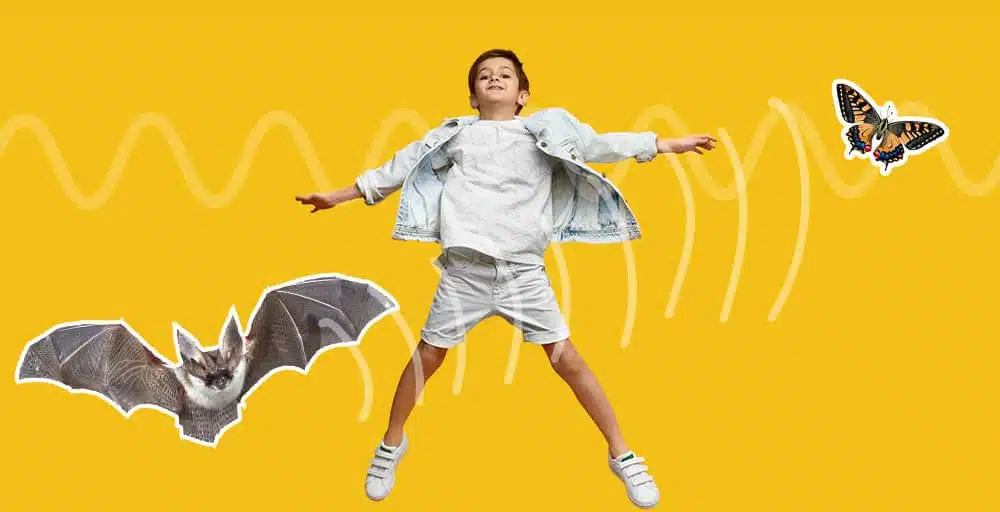
From echolocation to the properties of sound waves, we have it covered. Students will be sound waves travelling, bats sending out sounds, sound being absorbed, sound being reflected; they’ll be sound waves making it through the ear to the eardrum, and they’ll surf the sound waves’ amplitude. It will be “gnarly” dude.

So many life cycles to act out. So many things that affect them. Short cycles and long ones. Students will act out the cycles in connection with each animal’s surroundings. Students will learn that certain animals only exist in specific conditions. They’ll learn what environmental situations support or weaken animals. They’ll learn how human activity affects animal life cycles.

In this unit, we become light rays and interact with the world. We see what happens in a prism – how light can be broken into different colours. We’ll look at the path of light and how it is directed by the shape of a mirror. We will also explore how light is affected by transparent, translucent and opaque materials and casts shadows that are predictable. Light and shadow – a world of cause and effect.
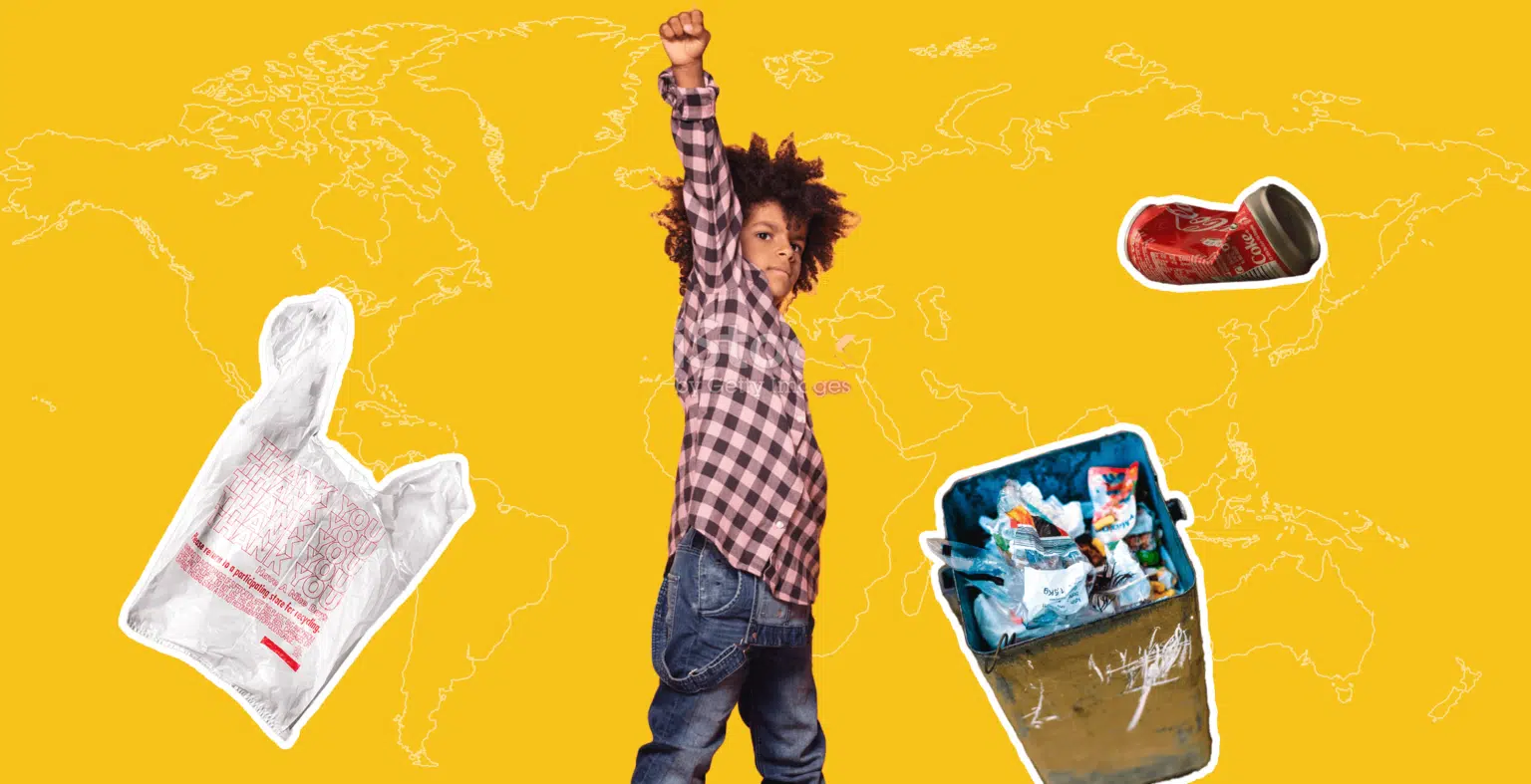
In the land of waste, the decomposers play a big role. Students will learn how nature creates waste. They will also explore how humans create and deal with waste, including waste that breaks down easily and waste that is toxic. From recycling, to smokestack scrubbers, water filters to composting facilities, we’ll look at the challenges of dealing with waste in our world.
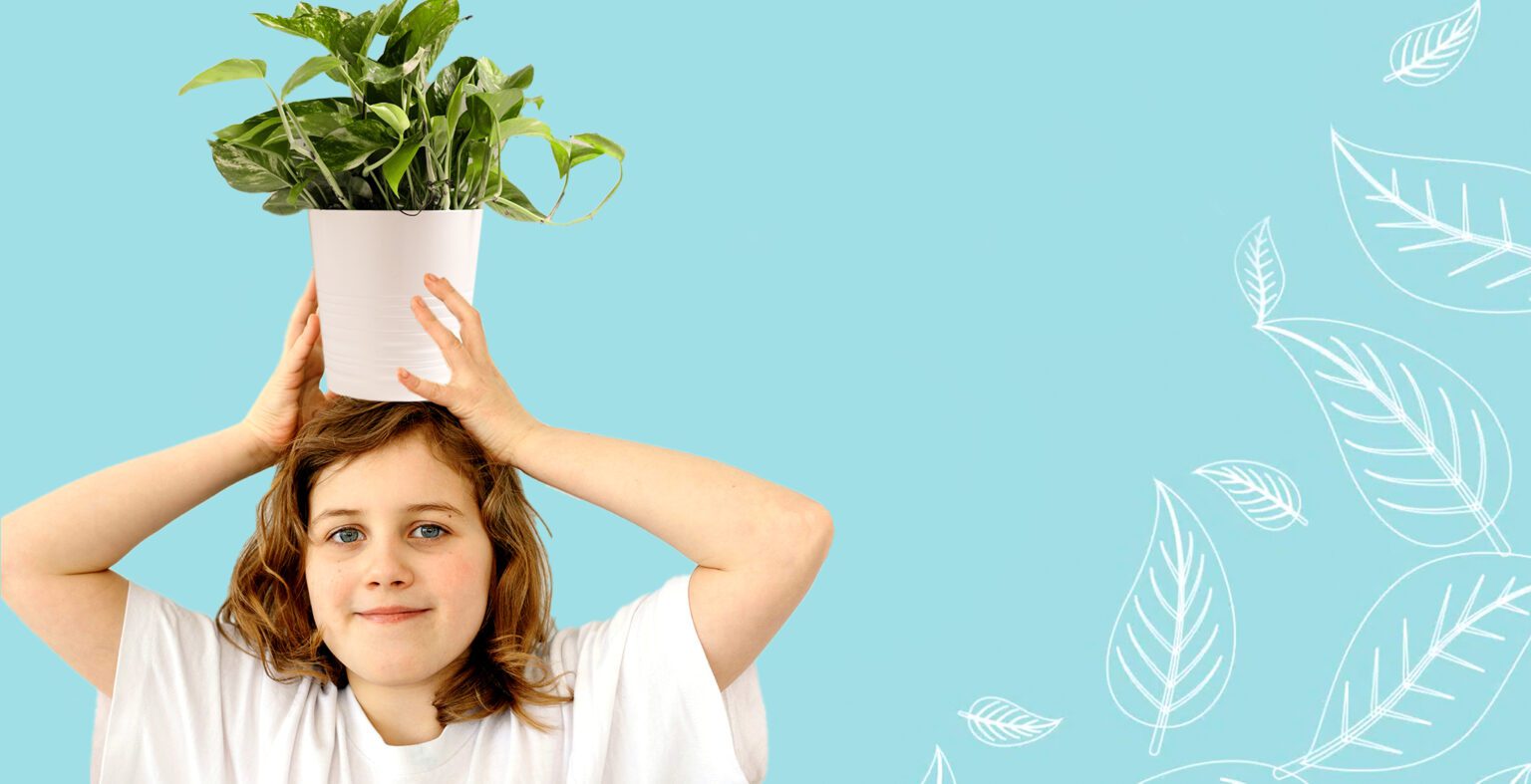
Being a healthy plant means you need a lot of things to go right. Students will be the plants and the “conditions” that affect them – the light, the soil, the temperature, the water. We’ll also look at how humans use plants for food, clothing and shelter as well as windbreaks and erosion control. Another really fun thing to explore is how seeds get moved from place to place. There is some great drama there.
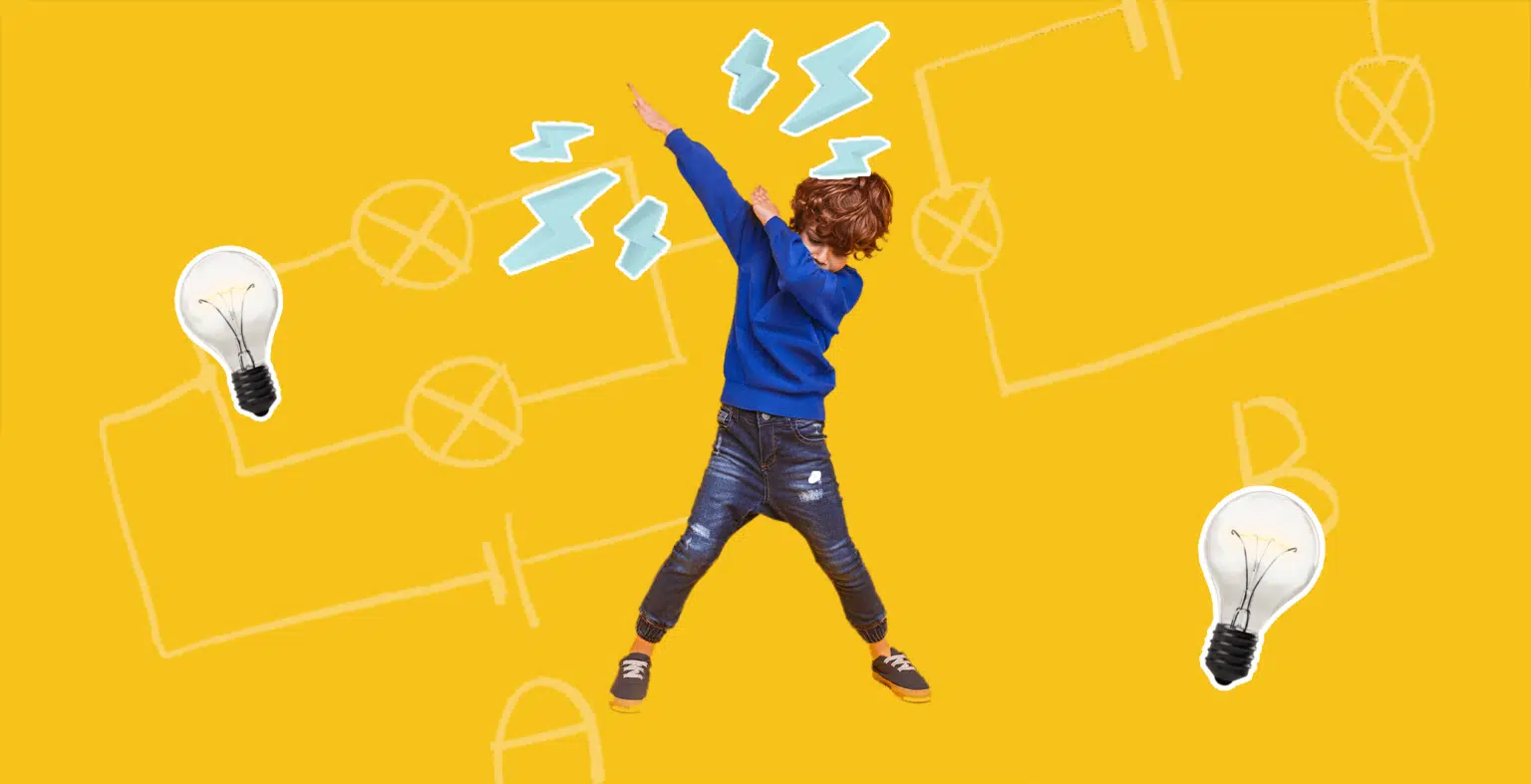
Students get pretty charged up when they act out things related to electricity. We’ll be making circuits, adding fuses, changing batteries from parallel to series and adding switches as we power up boomboxes to make sound. We’ll also take a look at how power is generated from various sources like water, gas, coal and the sun. Of course we’ll also act out amps, volts and watts. Shockingly fun!
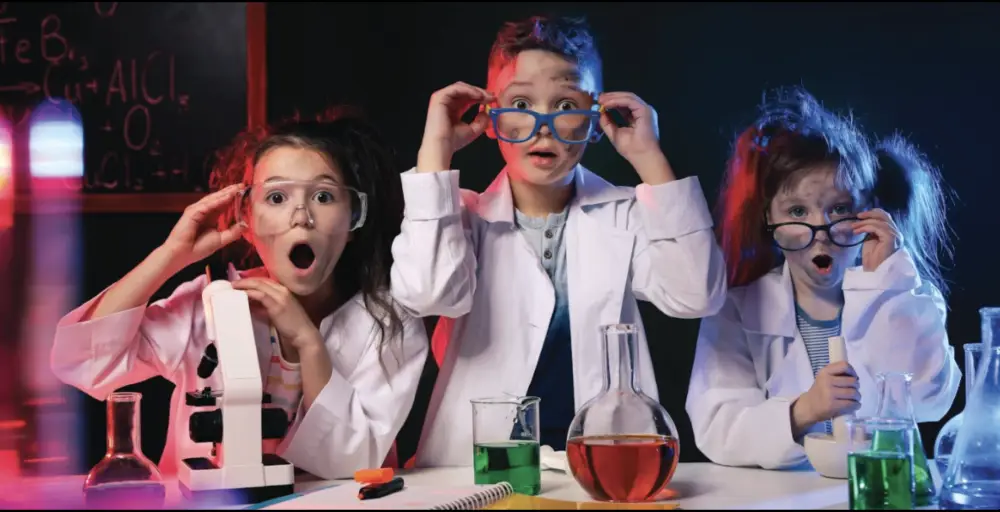

What is a hurricane, a tornado, a storm front? How does a Chinook Arch form? How does hail form? Find out in this unit. We’ll also look at how to measure weather, understand the difference between weather and climate and take a look at how humans affect weather by things like greenhouse gas production.

Students will go to air molecule boot camp to learn the properties of air. They’ll get compressed in the compressor, heated up in the hot air ballon and they’ll provide resistance and lift. Students will also learn about Bernoulli’s principle by acting it out. Get ready to fly!
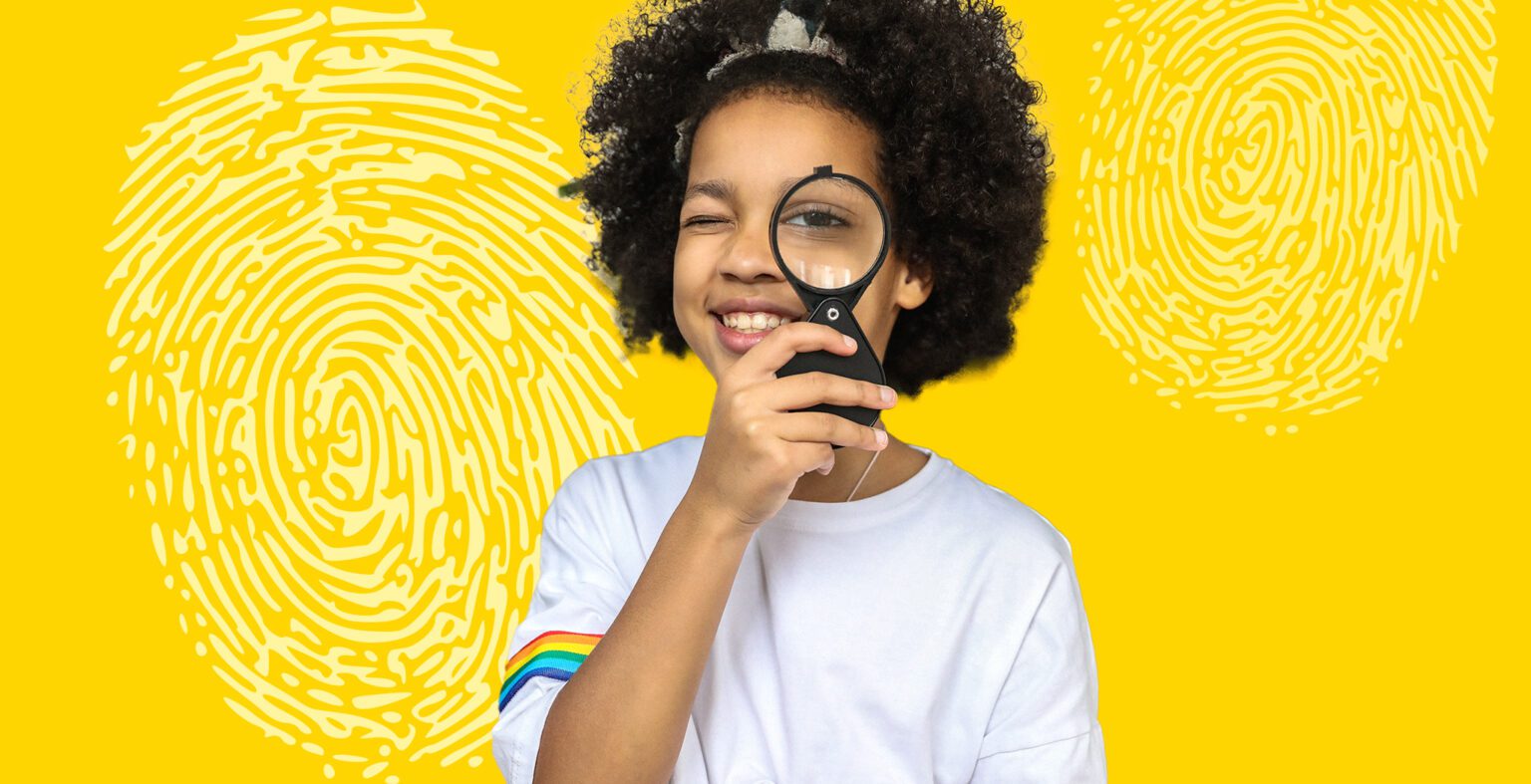
If there ever was a unit that was suited to acting things out – this is it. Teams of students will provide clues for other students to solve the investigation by providing types of evidence. Get your Sherlock hat on and have fun!
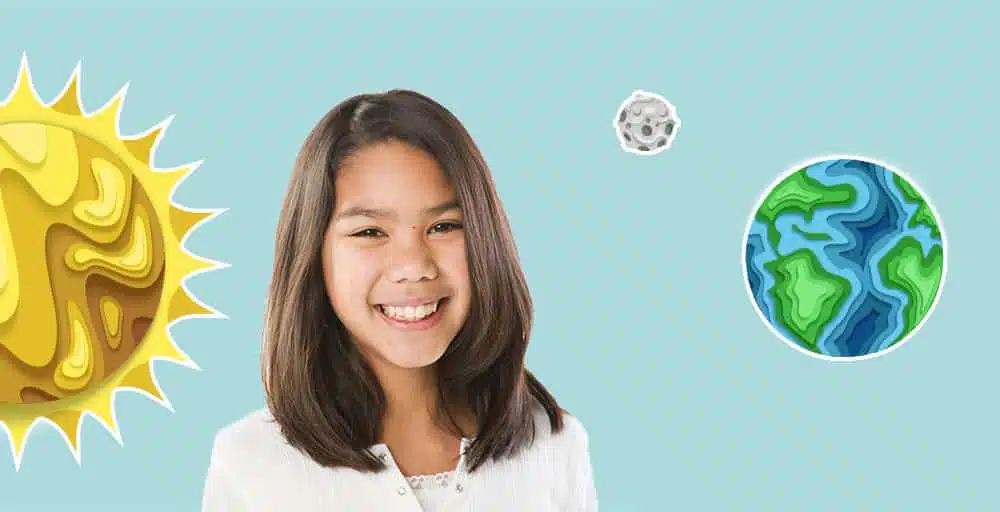
Acting out phases of the moon makes this science so understandable. Students will act out an eclipse of the moon and the sun, look at the affect of the moon on tides, and look at the phases of the moon and how they are created. It’s a stellar way to learn these things.
Testimonials
“Absolutely loved it! I thought it was excellent. I think the cost is great as it is. Great value.”
Earth Systems, Grade 1/2, All Boys Program, Calgary 2024‐25
“What a great workshop. Grade 2 learned the concepts and enjoyed a lot. It was superbly engaging for all types of learners. Best part is that ELL students were following the concepts.”
Earth Systems, Grade 2, Annie Foote School, Calgary 2024‐25
“This was a great experience for the boys and they left with real understanding.”
Earth & Space Systems, Grade 4, All Boys Program, Calgary 2024‐25
“Overall was great. The kids loved the instructor! It was energetic and awesome!”
Space, Grade 5/6, All Boys Program, Calgary 2024‐25
“A wonderful educational program. The material and the presenter were top notch! A ton of relevant material was covered. I learned a lot! It was the perfect combination of listen and look and move and internalize!”
Earth Systems, Grade 2, Annie Foote School, Calgary 2024‐25
“Visuals/interactive activities were the most effective part of the workshop. Price is reasonable.”
Earth Systems, Grade 2, Annie Foote School, Calgary 2024‐25
“Giving students a chance to act out “out of this world” concepts is a great way to solidify their understanding of complex processes.”
Greentree School, Drumheller 2021-22












What’s on your mind? Do you have a special project to propose? Do you want us to make a presentation to your staff or school council? Or tell us how we did at your school? Do you want to book or talk about a residency? Reach out.
"*" indicates required fields
Helping schools and communities explore their world through children’s theatre and web technology.
Copyright © 2025. All Rights Reserved | Privacy Policy